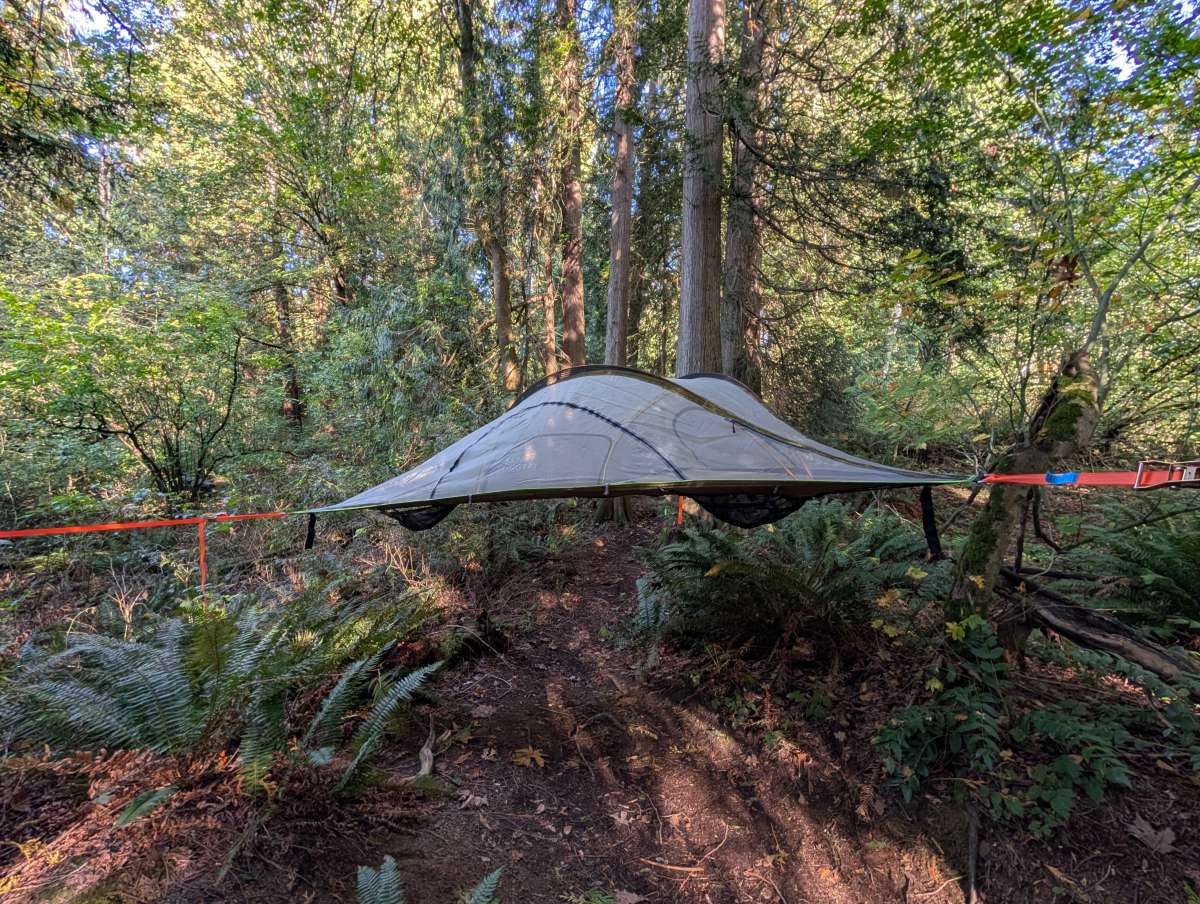
REVIEW – It’s rare when a new development in outdoor gear surprises or impresses me. Usually, unique entries to the market turn out to be more about gimmicks and less about usefulness and practicality. The Tentsile Safari Stingray Tree Tent, however, is one new product that definitely lives up to the hype.
This inventive shelter takes the best aspects of a hammock and marries them with the durability of a high-end adventure tent. Setup is incredibly easy, as long as you find an appropriate spot, and the build quality is outstanding. All of this ingenuity does come with a high price point, though, as the Safari Stingray Tree Tent sells for $1,159. While other luxury tents are priced in the same range, the Tentsile lets you stay elevated while relaxing out in the wild.
What is it?
The Tentsile Safari Stingray is a tent engineered to be suspended between three trees like a hammock, offering an off-ground alternative to traditional tents. The Safari Stingray can accommodate up to three adults and features a large interior enclosed by a mesh canopy for ventilation.
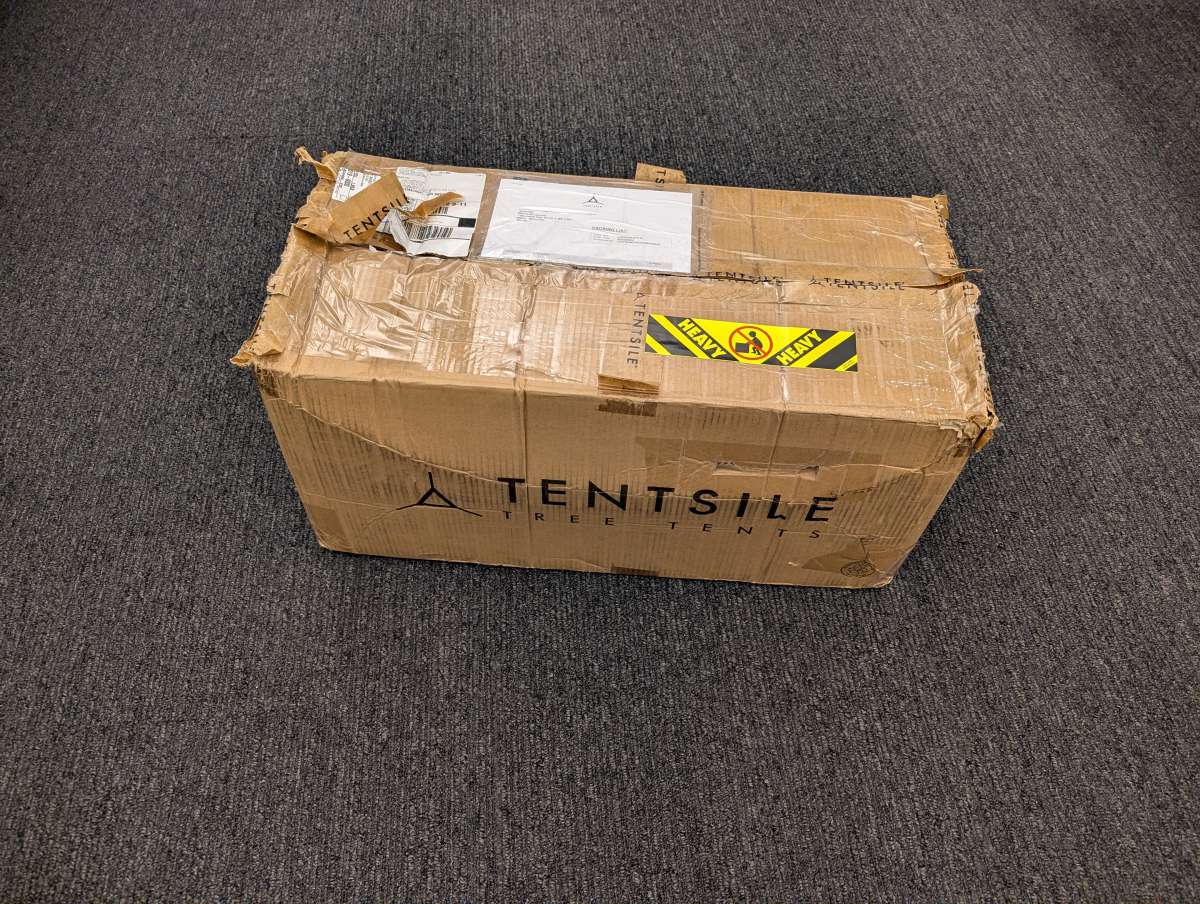
The Tentsile ships in a plain brown box labeled with the Tentsile logo. The box is pretty heavy, and mine suffered a bit of abuse during its trip.
What’s included?
- Safari Stingray 3-Person Tree Tent
- Rainfly
- Tent Bag
- 2 x Anodized aluminum alloy poles
- 3 x Understorage Nets
- 3 x Heavy-duty ratchet buckles
- 3 x Polyester straps 19ft (6m)
- 3 x Low-impact yellow screw pegs
- 3 x WaterGates
- 3 x Bungee Cords
- 3 x Tree Wraps
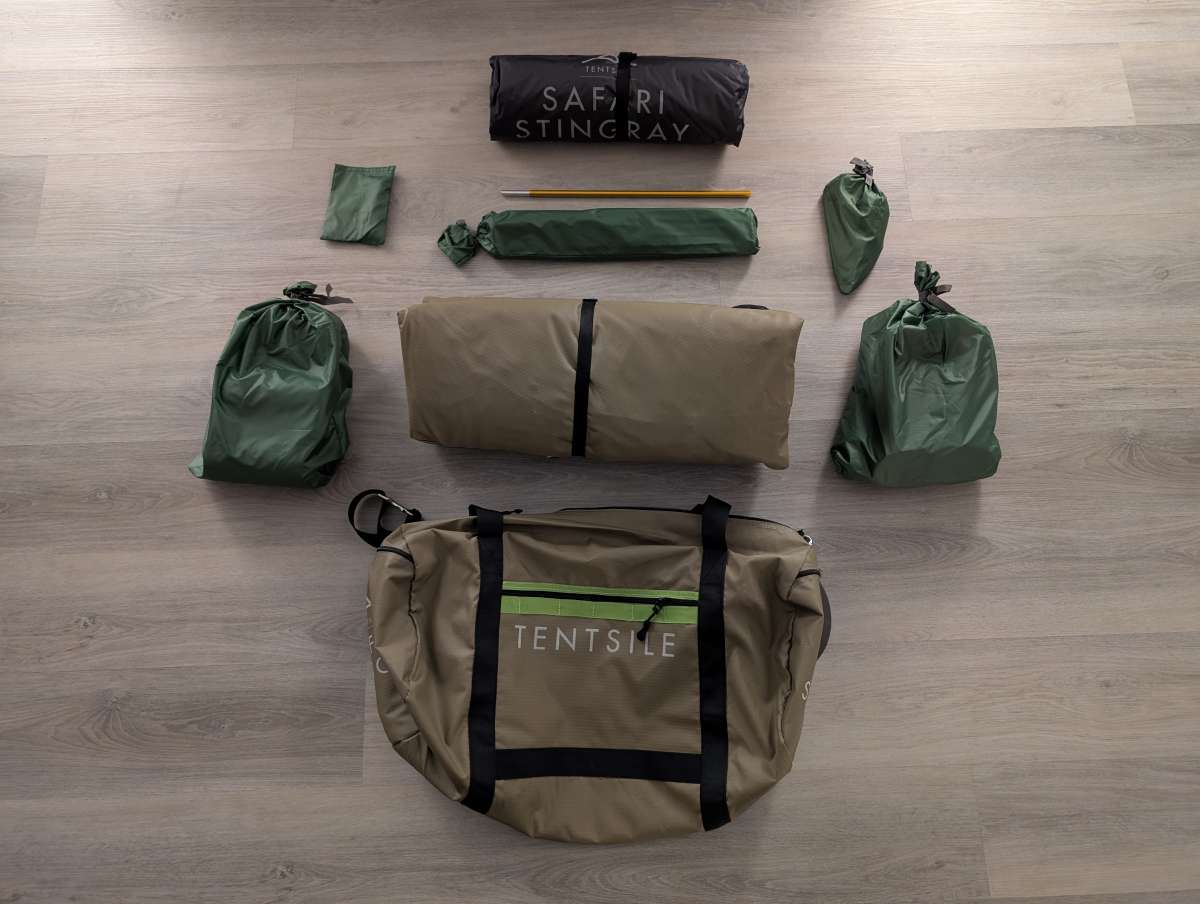
Tech specs
- Capacity: 880lbs (400kg)
- Seasons: 4-Season
- Weight: 33.1lbs (15kg)
- Packed Size: 25.5 x 11.8 x 11.8in (65 x 35 x 35cm)
- Head Height: 4ft (1.2m)
- Floor Area: 78sqft (7.25sqm)
- Floor Dimensions: 13.5 x 13.5 x 13.5ft (4.1 x 4.1 x 4.1m)
- Covered Porch Area: 150sqft (14sqm)
- Rainfly Fabric: 70D, PVC coated Polyester (8,000HH)
- Floor Fabric: 600D Dacron, PU coated
- Insect Mesh: No-See-Um Insect Mesh 115g/sqm
- Ratchets: 2.5-Ton Rated
- Straps: 35mm x 6m Polyester
- Poles: 11mm Anodized Aluminium
- Doors: 3 & center hatch
- Recommended setup height: 4ft (1.2m)
- Minimum tree diameter: 16in (40cm)
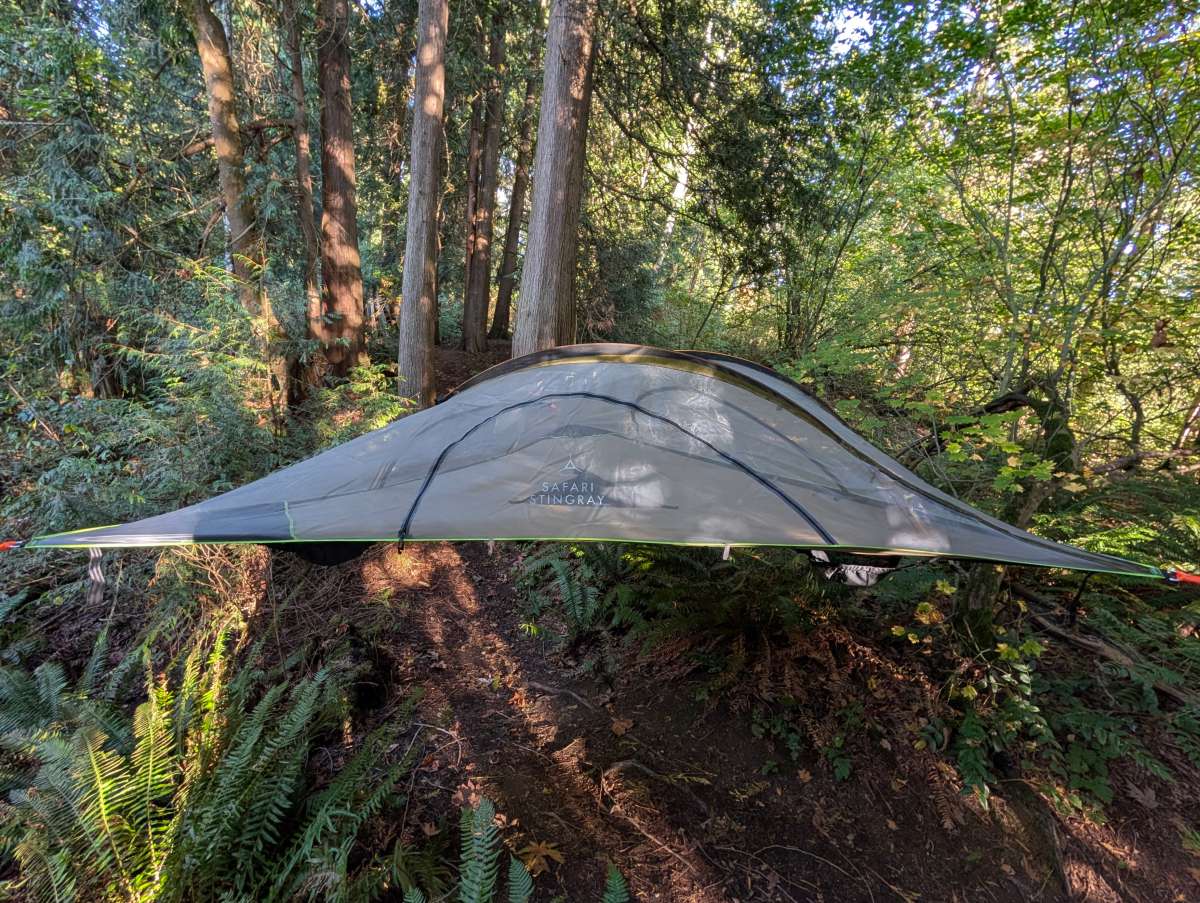
Design and features
The Safari Stingray has an innovative design that I doubted would be practical right up until I climbed into it. The source of the tent’s effectiveness is the floor’s durable material, made from 600D Dacron fabric and reinforced using seatbelt webbing. This webbing provides strength to the tent structure and creates adjustable separate sleeping areas for the occupants. With only two aluminum poles to provide height and form for the tent, the Safari Stingray is really an impressive piece of engineering.
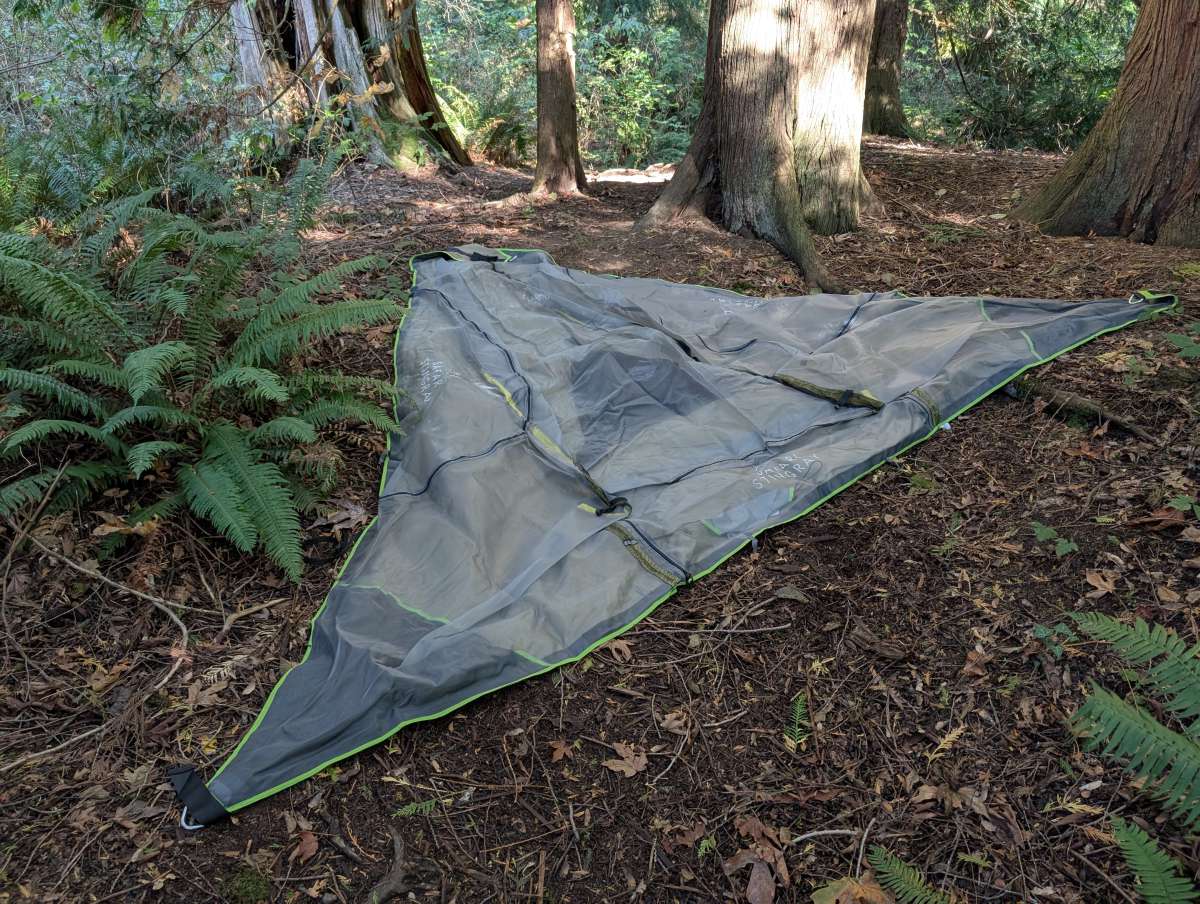
The unique 3-point anchor system creates the necessary tension for the floor to be slept on, providing just the right amount of slack for comfort.
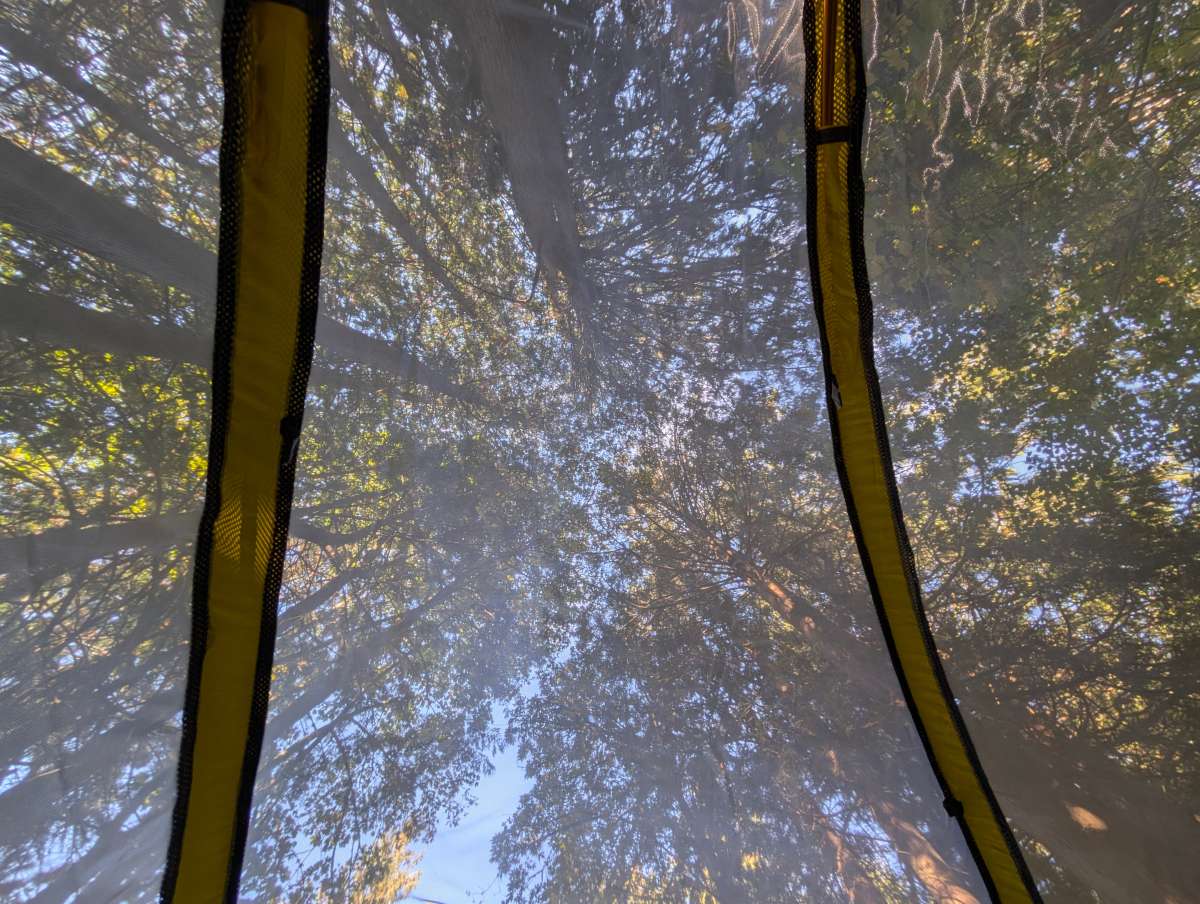
The Safari Stingray comes with a No-See-Um insect mesh integrated into the floor. Ventilation was great despite the density of the mesh.
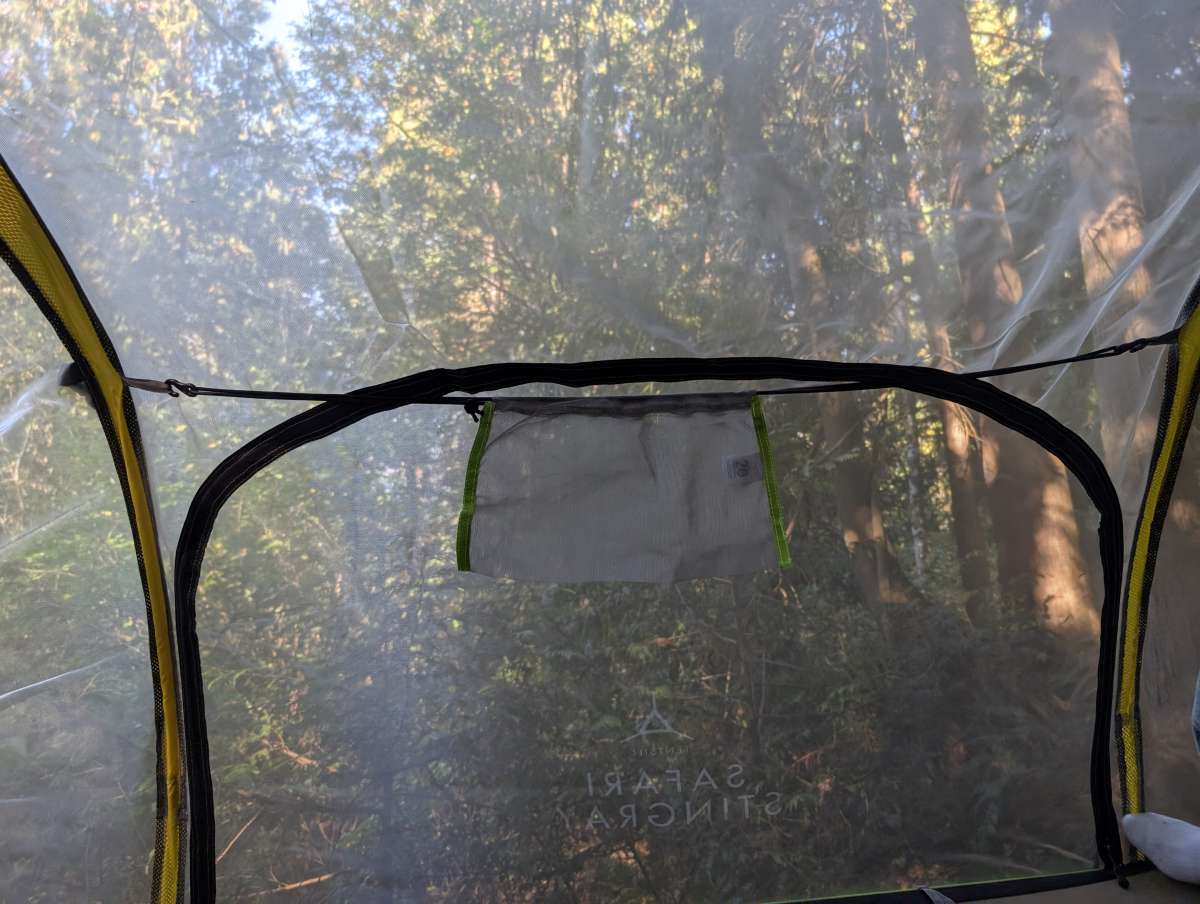
The tent has three internal storage nets for holding small items.
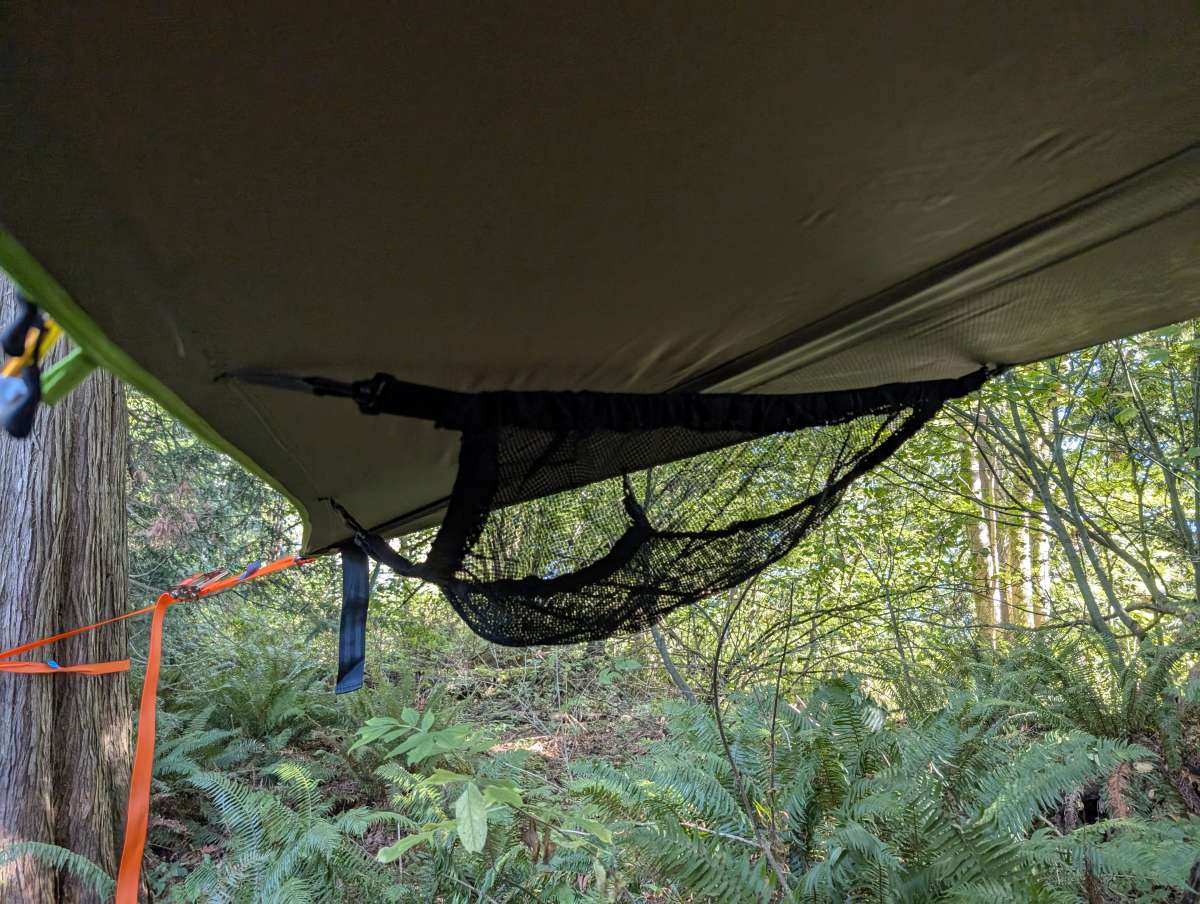
There are also three underfloor storage nets for backpacks and other larger items.
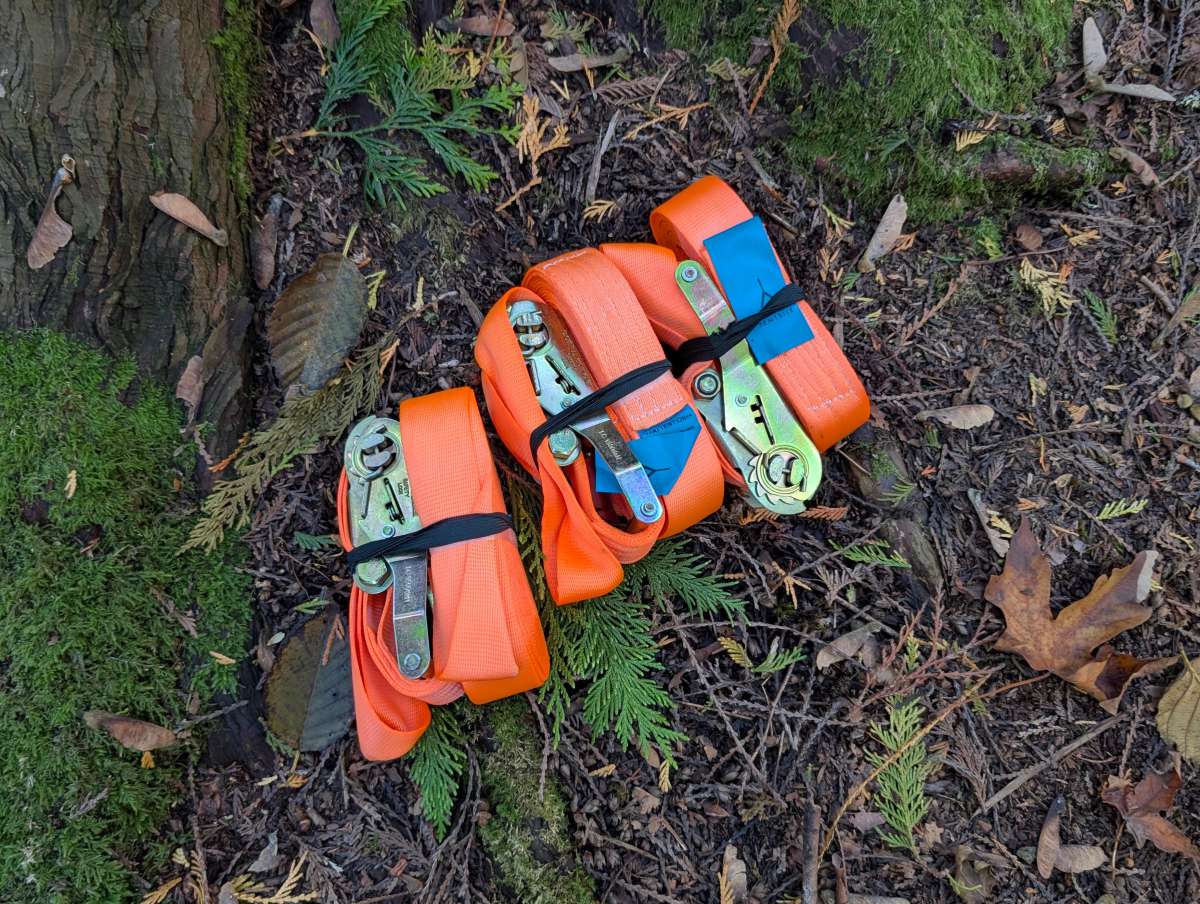
The ratchet straps used to connect and suspend the tent are standard-type ratchets rated at 2.5 tons.
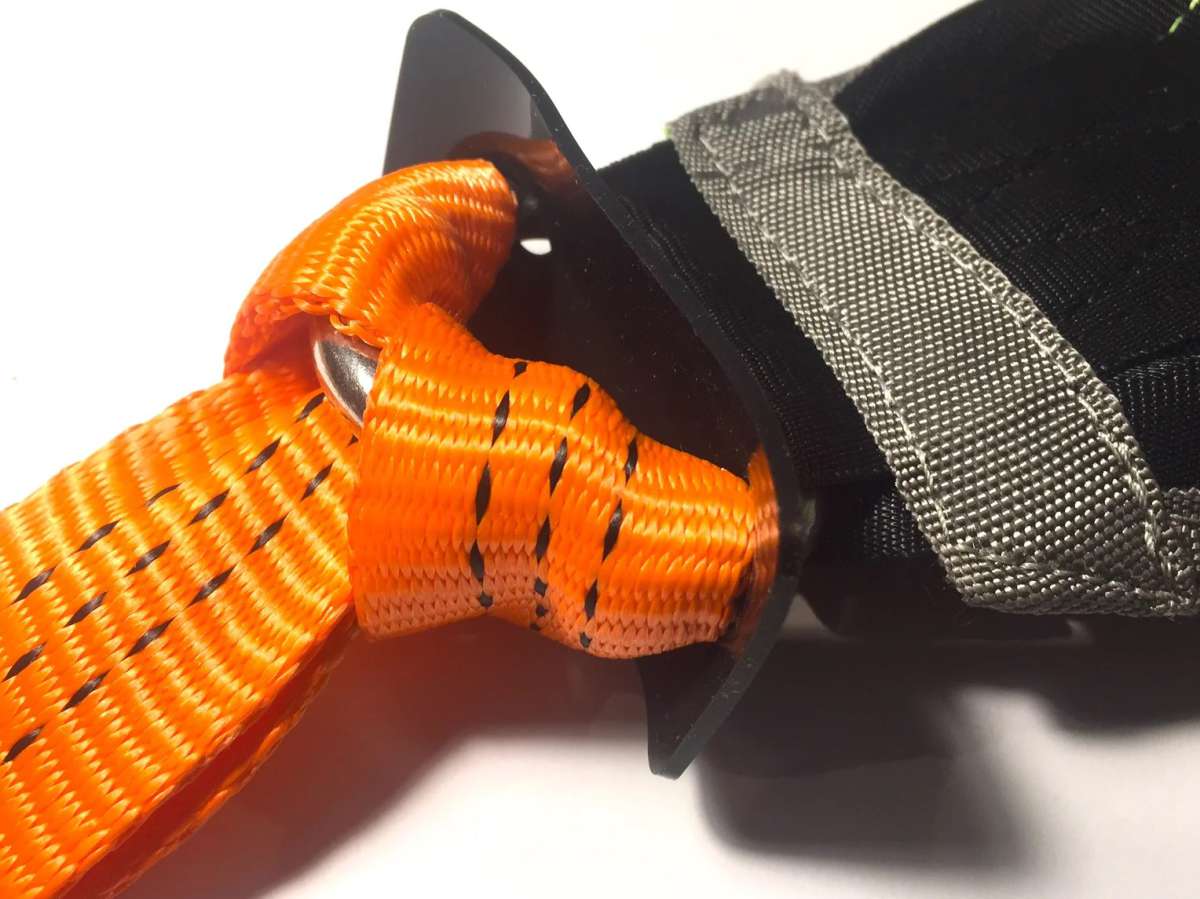
The tent comes with three Watergates, which are small rubber stoppers that attach to the ends of the ratchets. These prevent water from entering under the rainfly in the event of extensive rain.
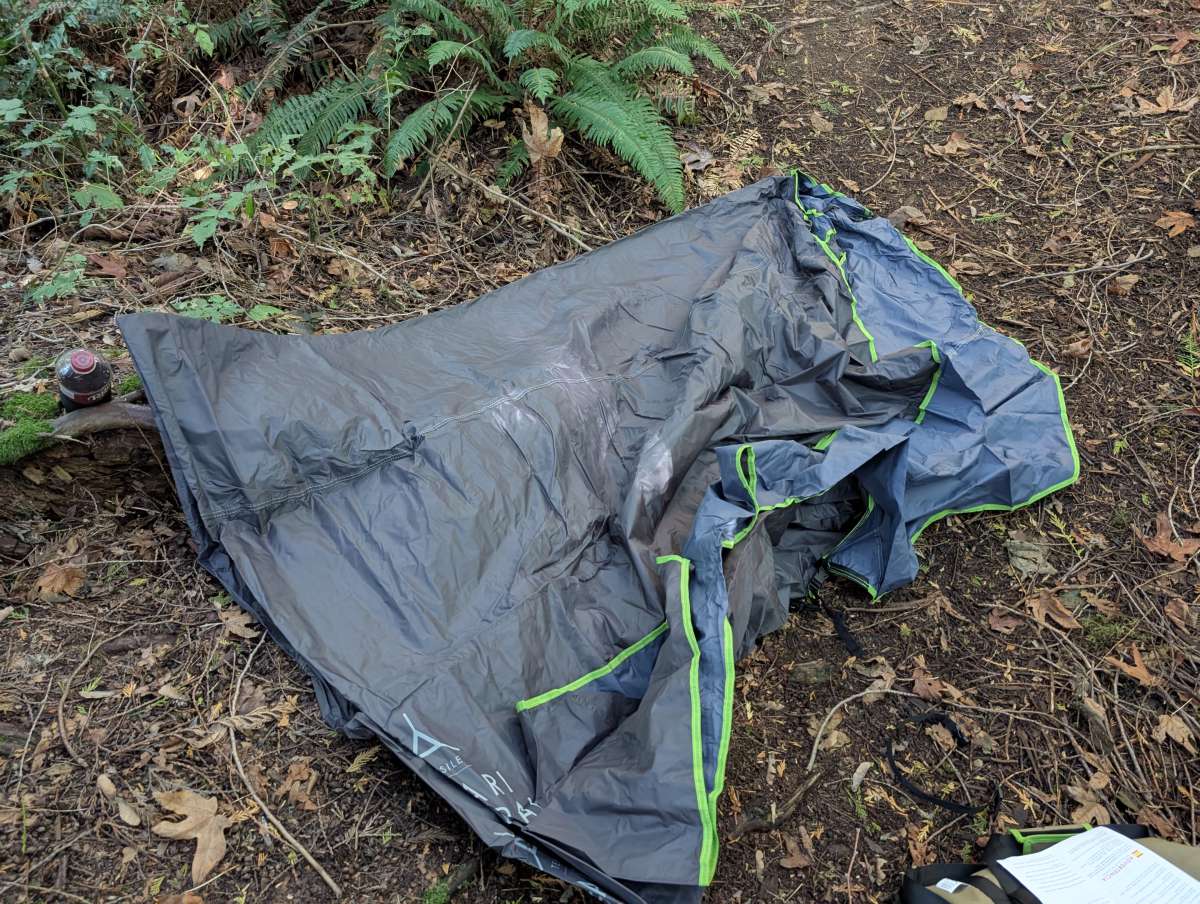
The rainfly is made of 70D polyester fabric and has a Hydrostatic Head (HH) rating of 8000. This rating measures how waterproof a fabric is; the higher the rating, the more waterproof the fabric. Waterproof tents are usually rated at 3000 or higher. When attached, the Safari Stingray’s rainfly extends outward from the tent, increasing the dry area underneath for storing gear or providing a covered space to hang out.
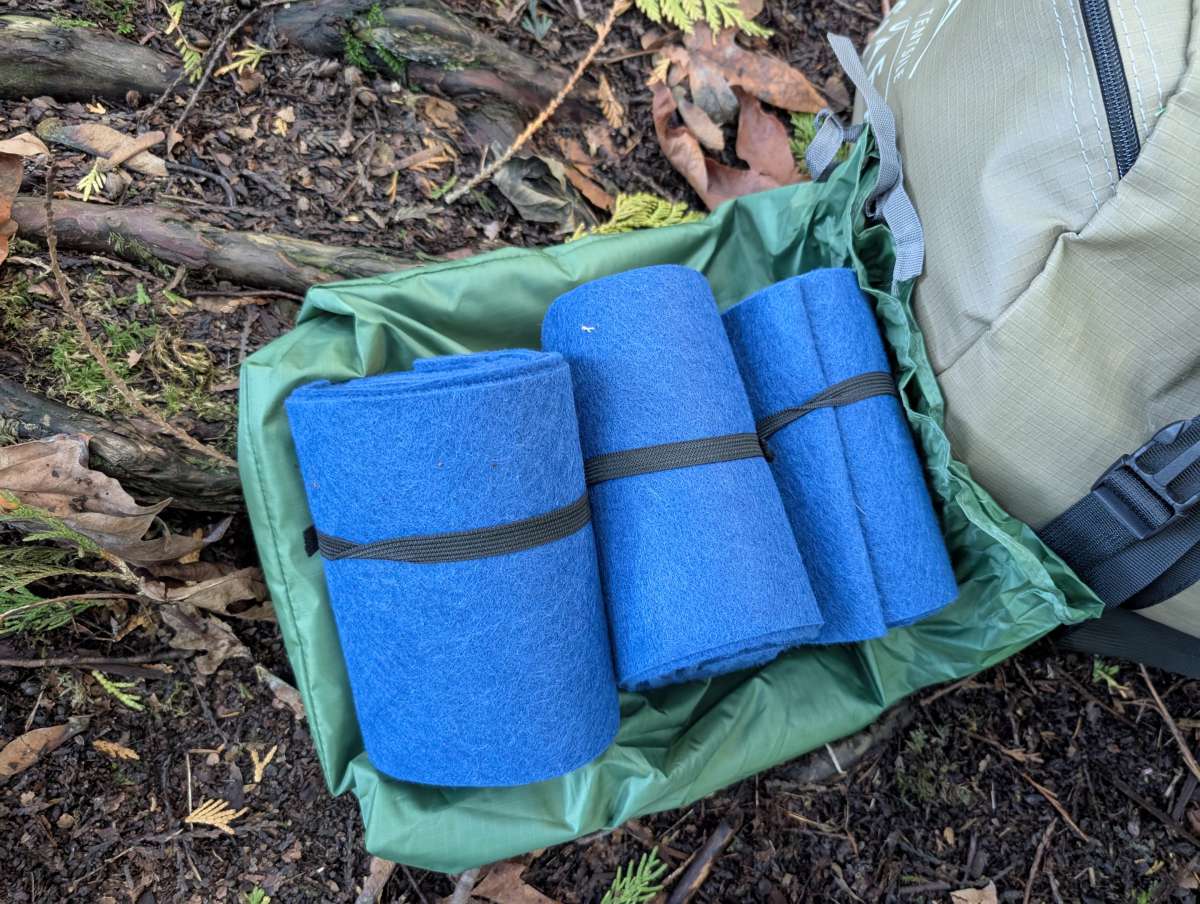
Three Tree Wraps are included with the tent to place between the straps and the trees they are attached to, preventing damage to the trees.
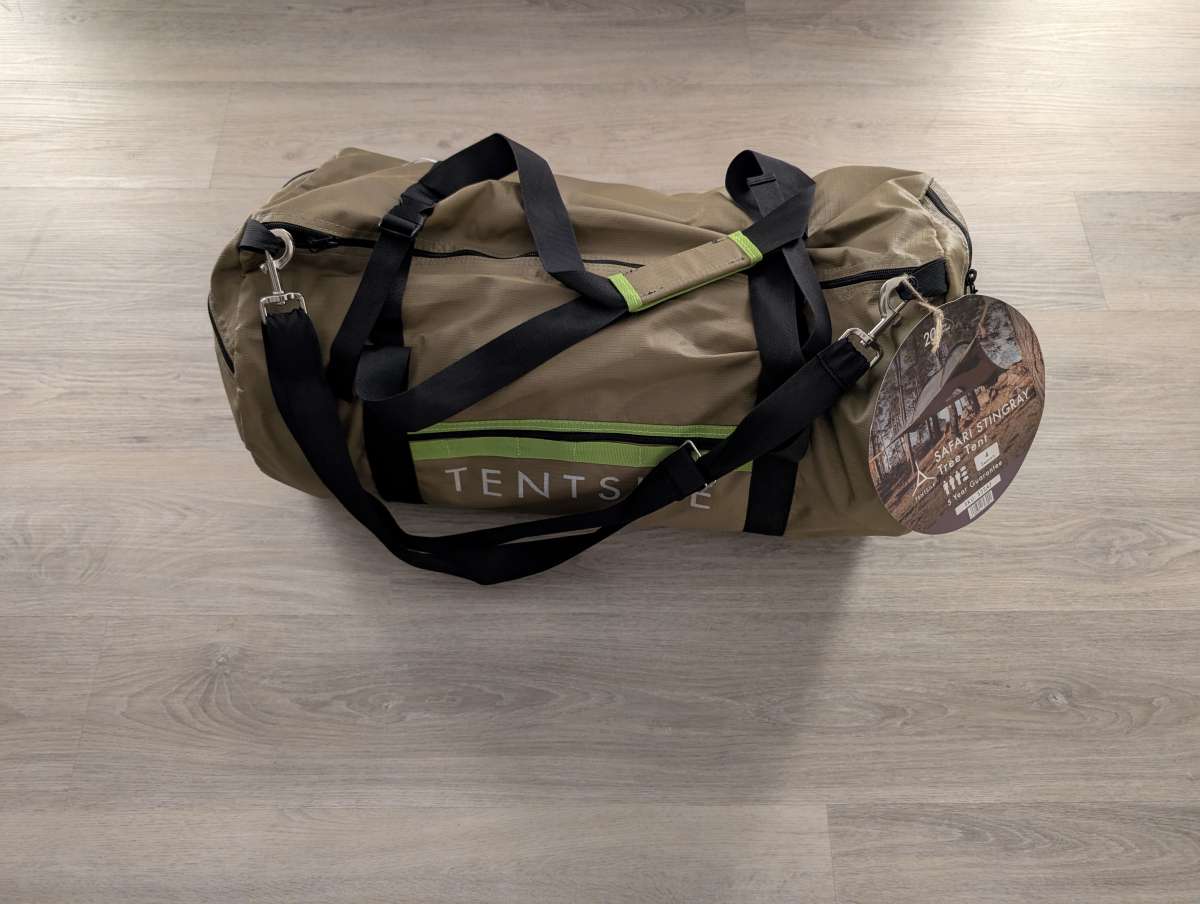
The bag that holds all of the Safari Stingray parts is extra large to accommodate imperfect packing and is made of ripstop material for durability.
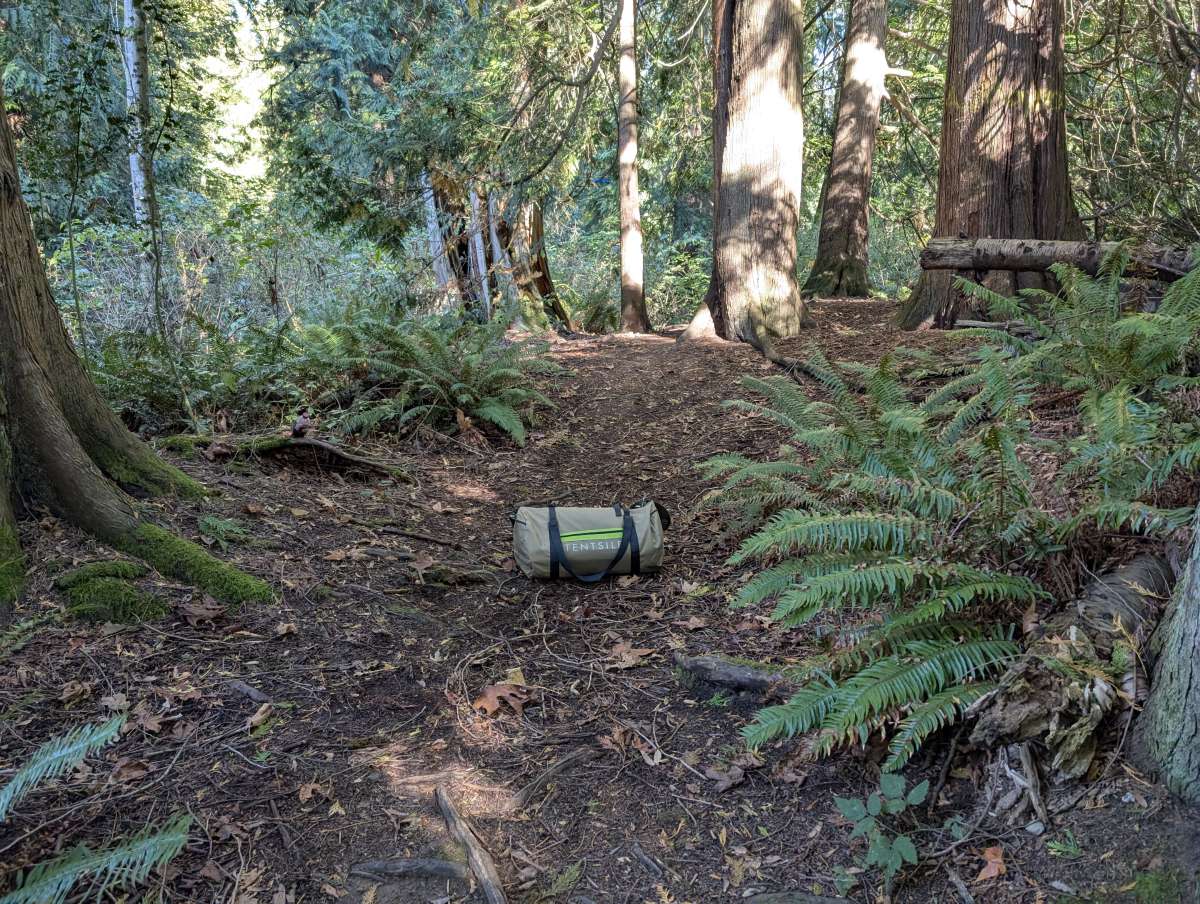
Assembly, Installation, Setup
With just three ratchets, straps, and two poles, setting up the Safari Stingray is relatively straightforward and could, in theory, be done by one person. Fortunately, I had an assistant to help with the setup and testing. The process begins by finding three trees spaced about 10 to 15 feet apart and less than 90 degrees from each other. This proved to be more challenging than I anticipated, even in the Pacific Northwest, and we had to restart several times.
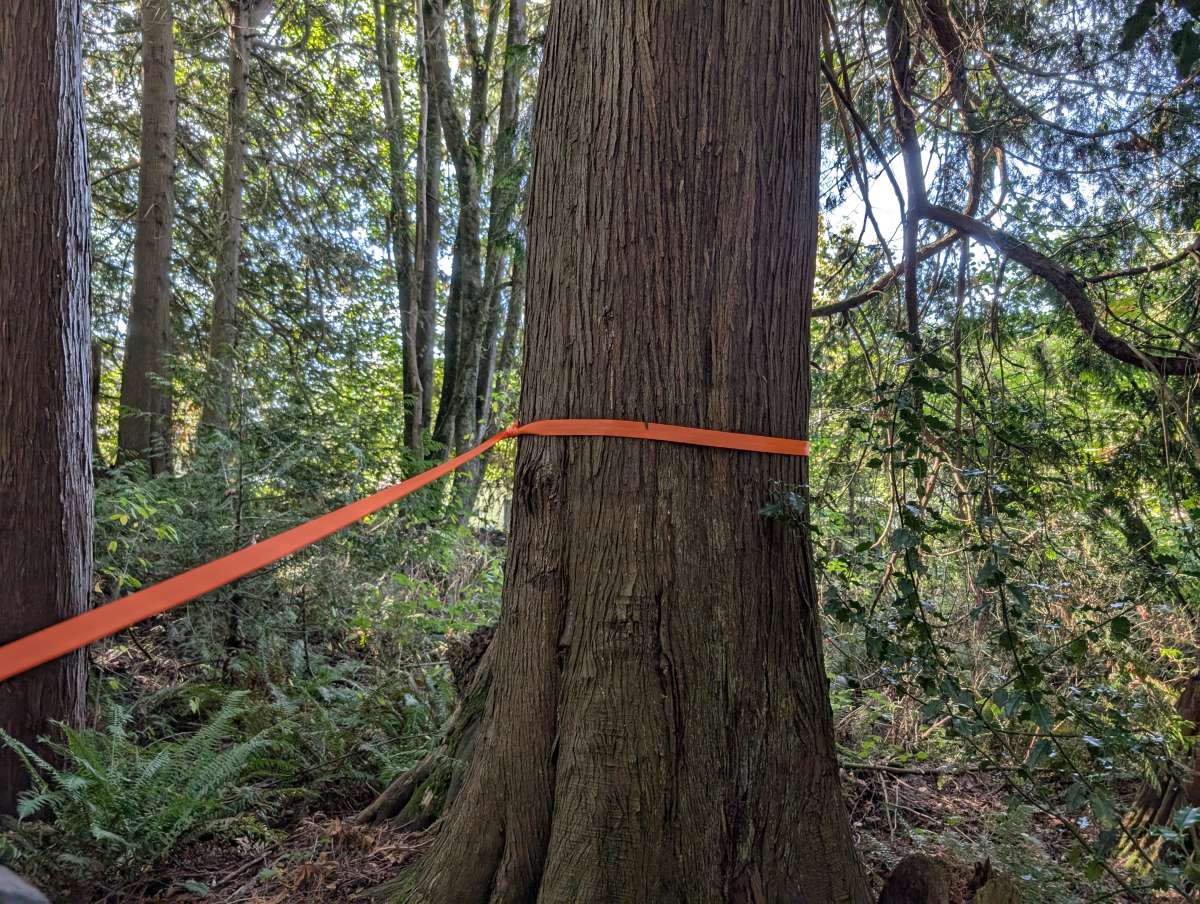
Once a suitable spot is found, the provided straps should be wrapped around the trees at a height that allows for comfortable entry and exit. Four feet is the recommended height. The trees should be at least 16 inches in diameter to properly support the tension and weight.
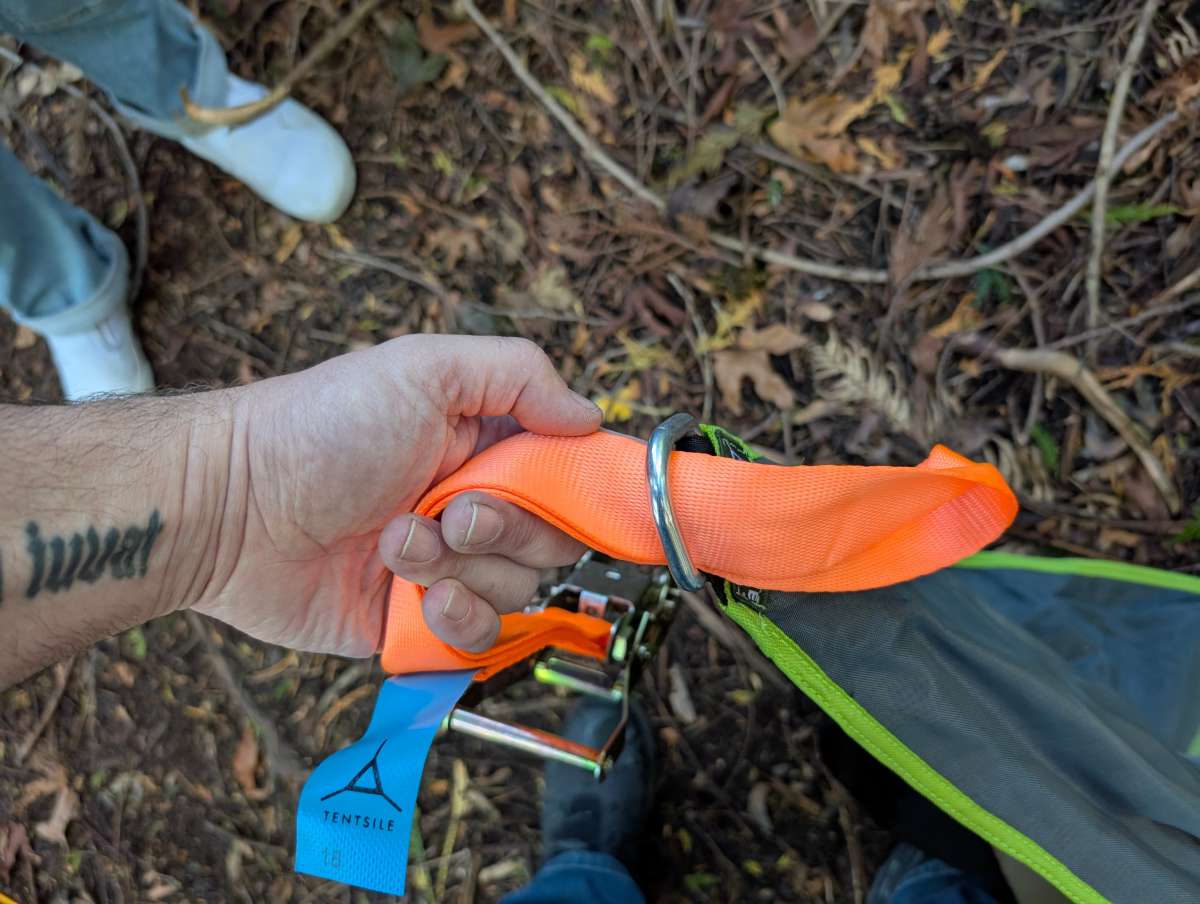
The loops at the ends of the ratchets need to be threaded through the metal rings at each of the tent’s three corners.
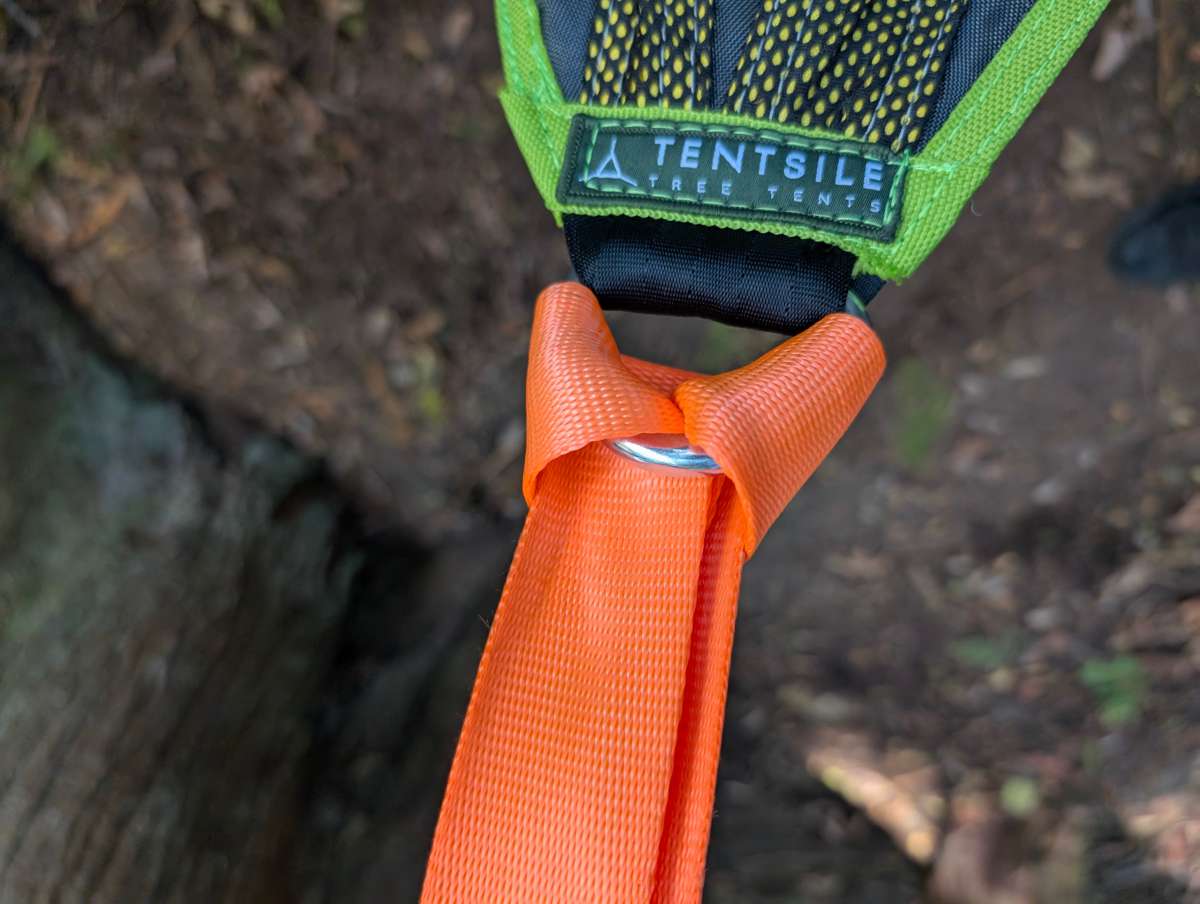
It’s important to ensure that the loops of the strap lay flat against each other and the tree to avoid any binding or kinking.
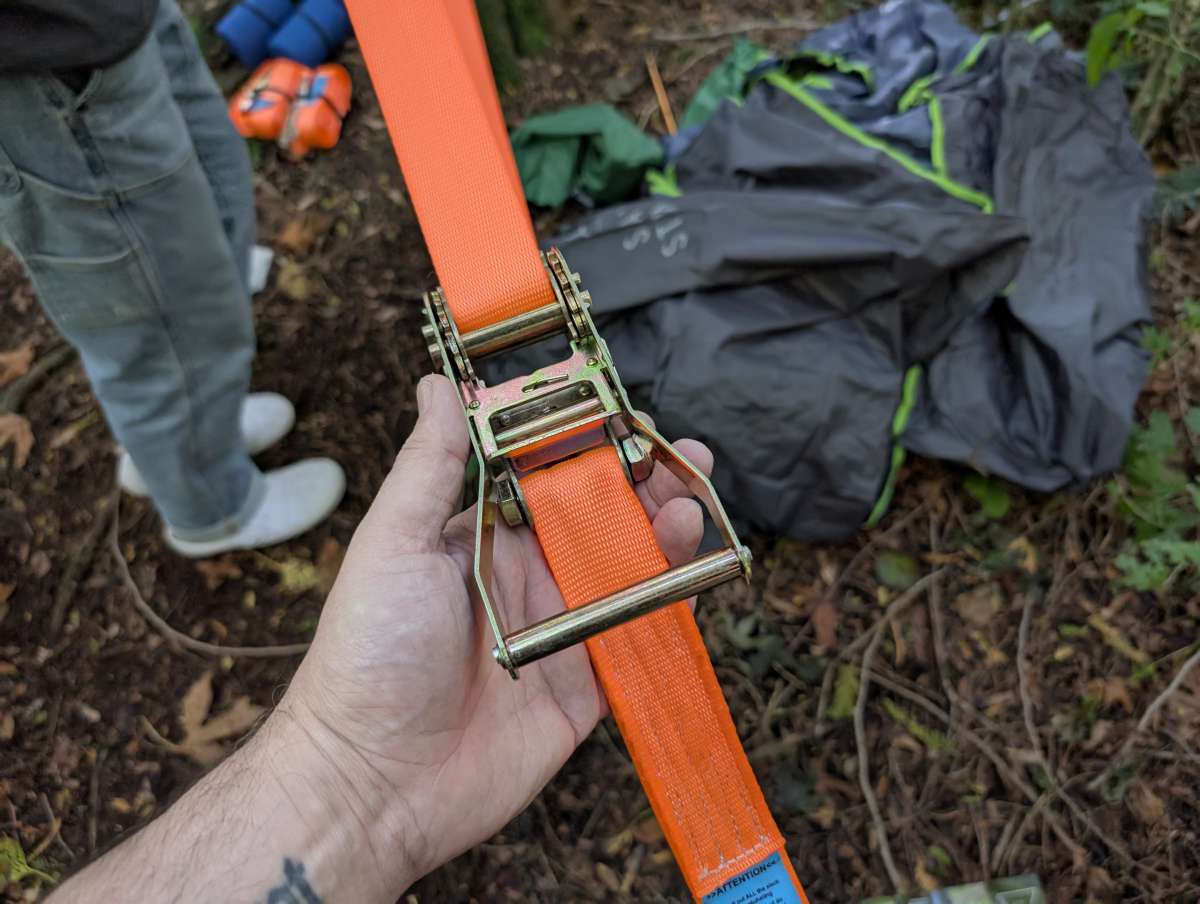
After attaching the ratchets to the tent and running the straps through the ratchets, the tent is ready to be lifted off the ground. The straps need to be pulled taut first before cranking the ratchets.
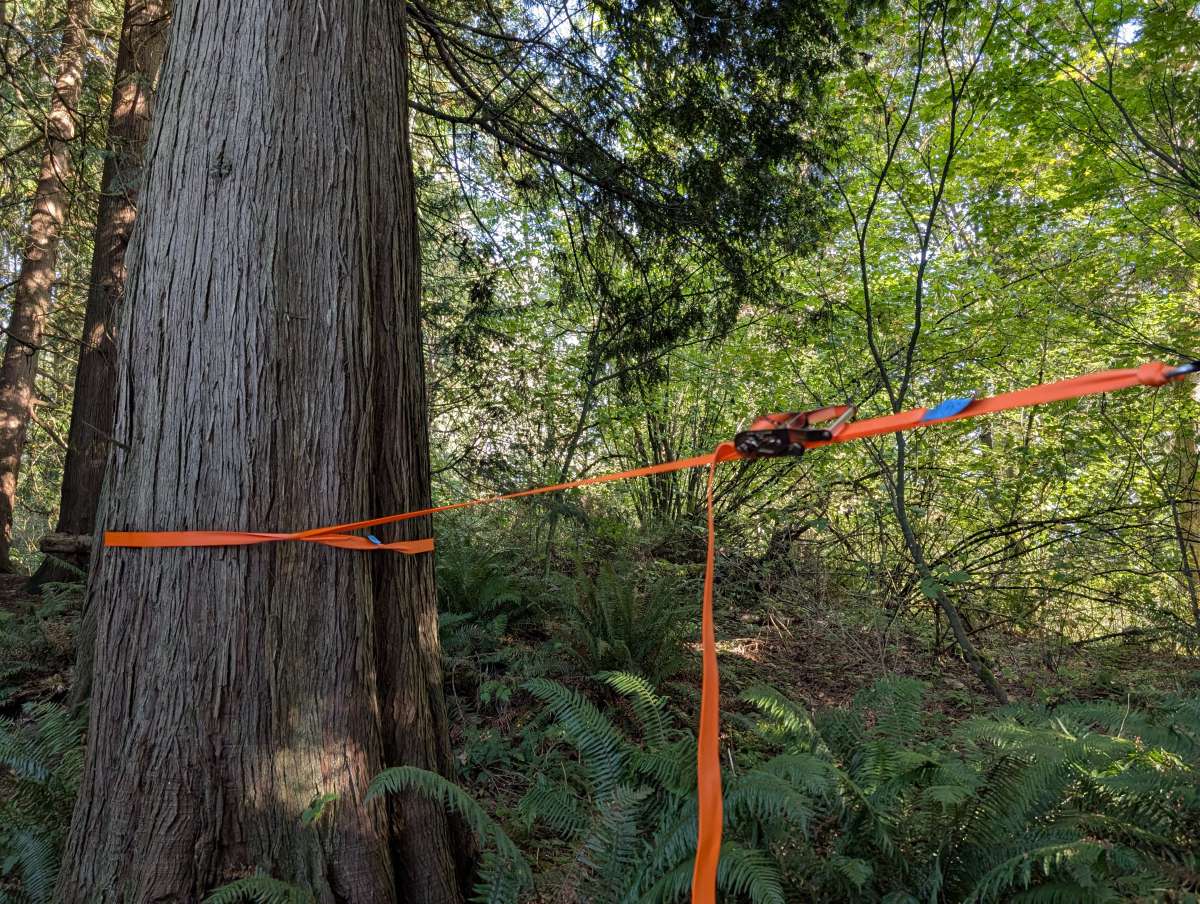
Once appropriately tensioned, the ratchets need to be locked in position for safety.
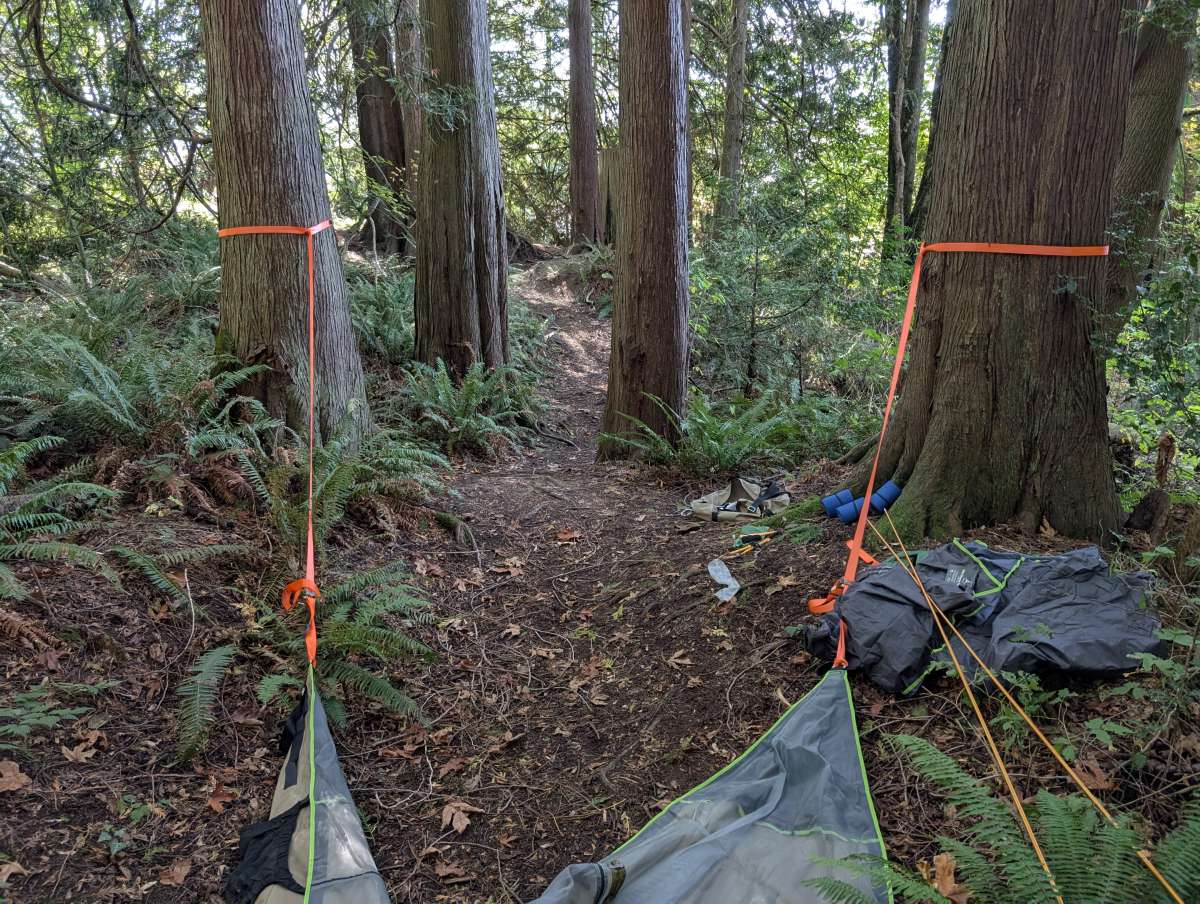
The first set of trees we found turned out to be a little too close to each other on one side.
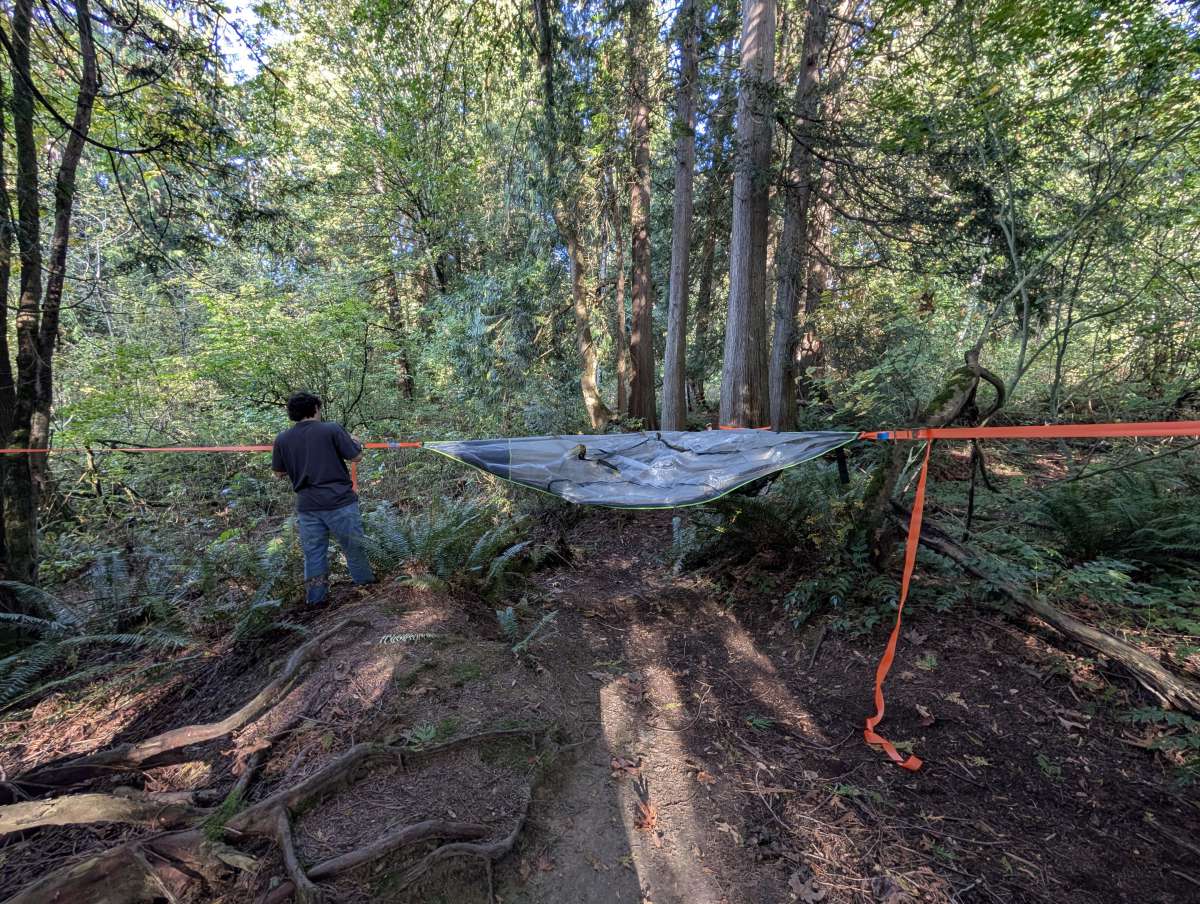
The second set of trees was appropriately spaced but at too narrow of an angle to keep the same tension on all three sides of the tent.
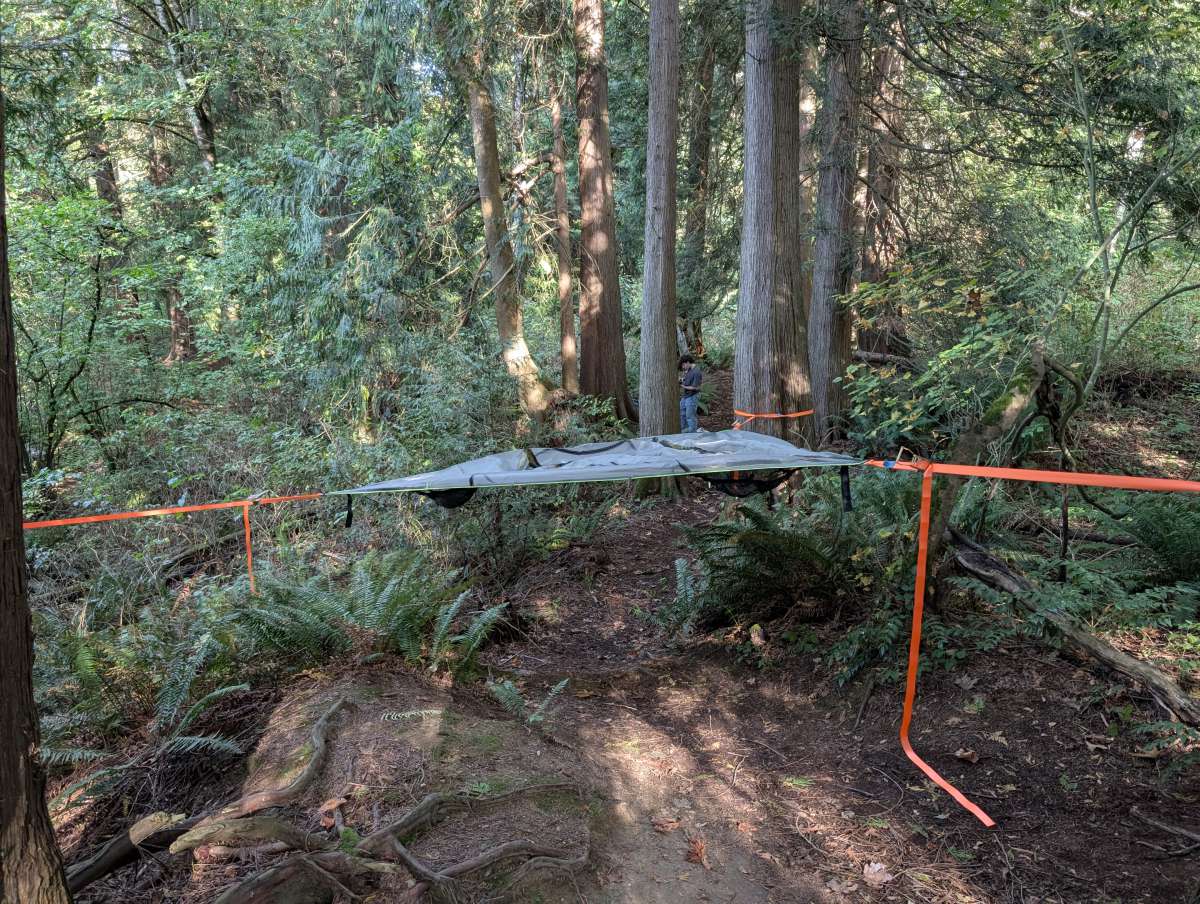
After some time searching the woods, we finally found trees at the right distance and angle; as the saying goes, “third time’s the charm.”
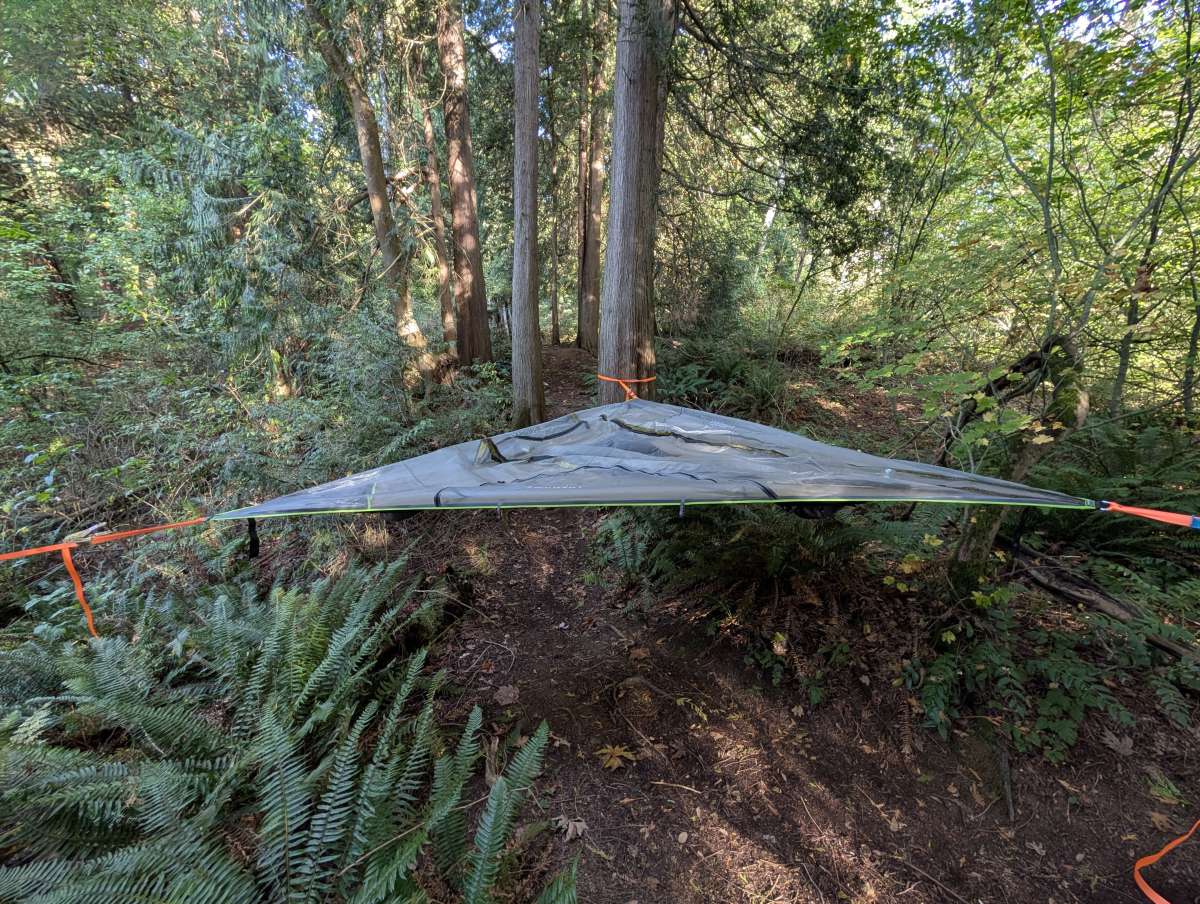
We made sure everything was level and cranked the ratchets as tight as they’d go without putting too much stress on the tent.
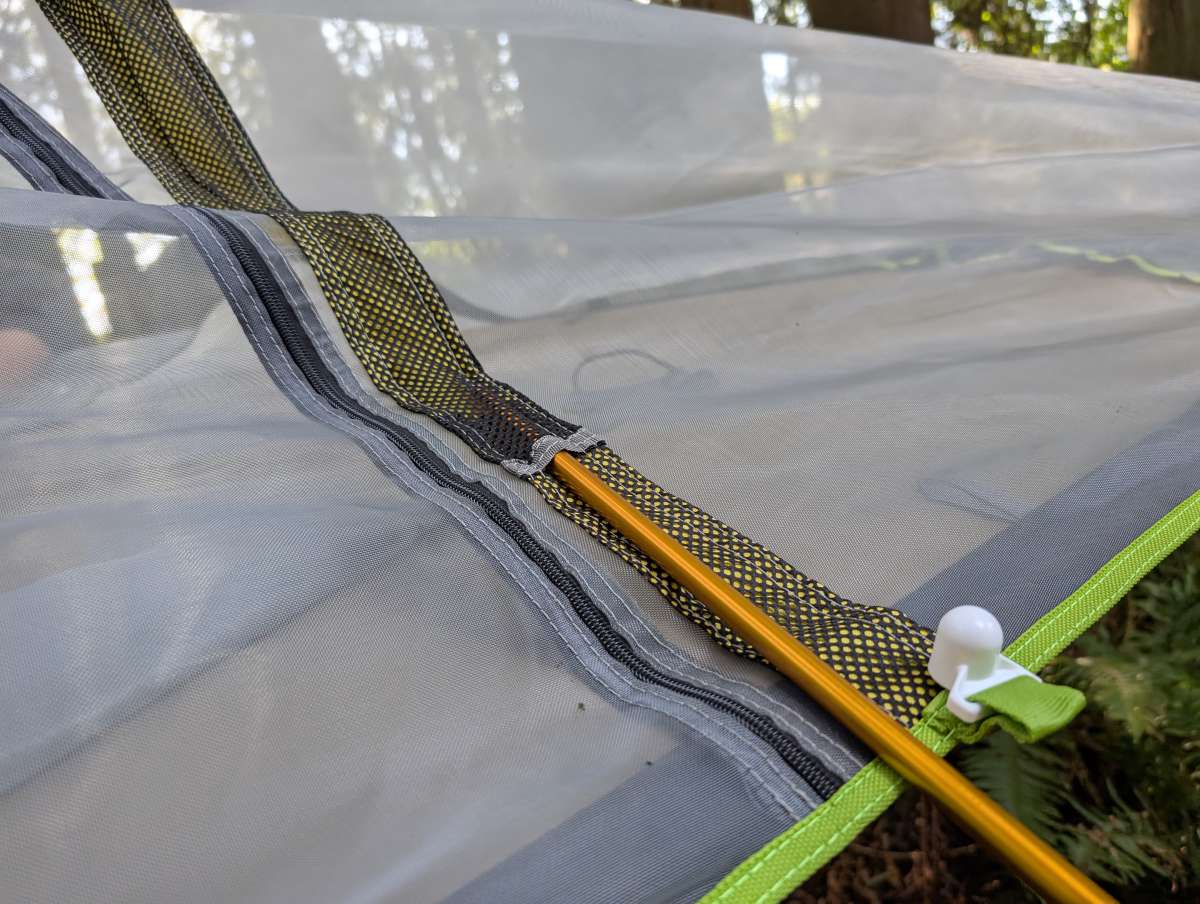
To raise the roof of the Tentsile, we ran the aluminum poles through their loops from one side of the tent to the other.
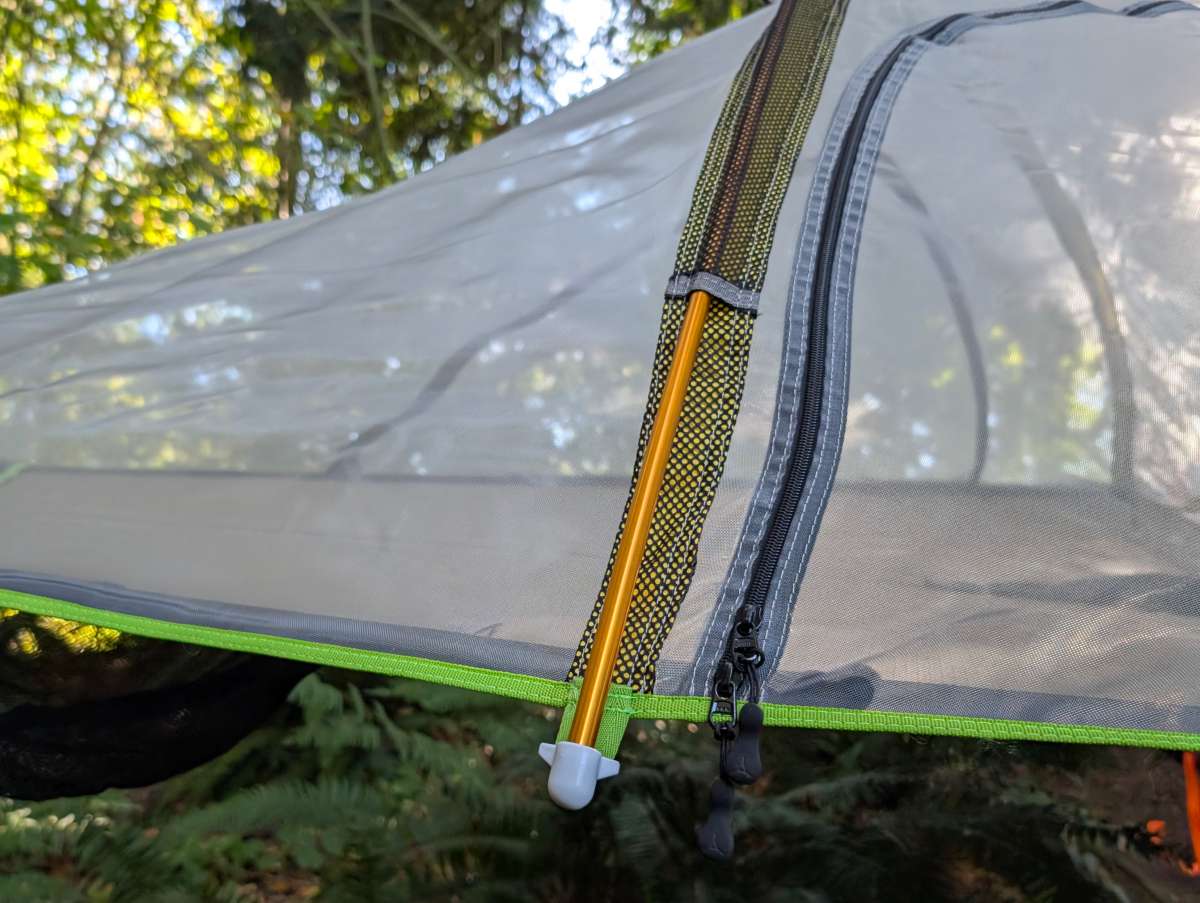
Both poles stay locked into place with tension from being bent and two plastic end caps.
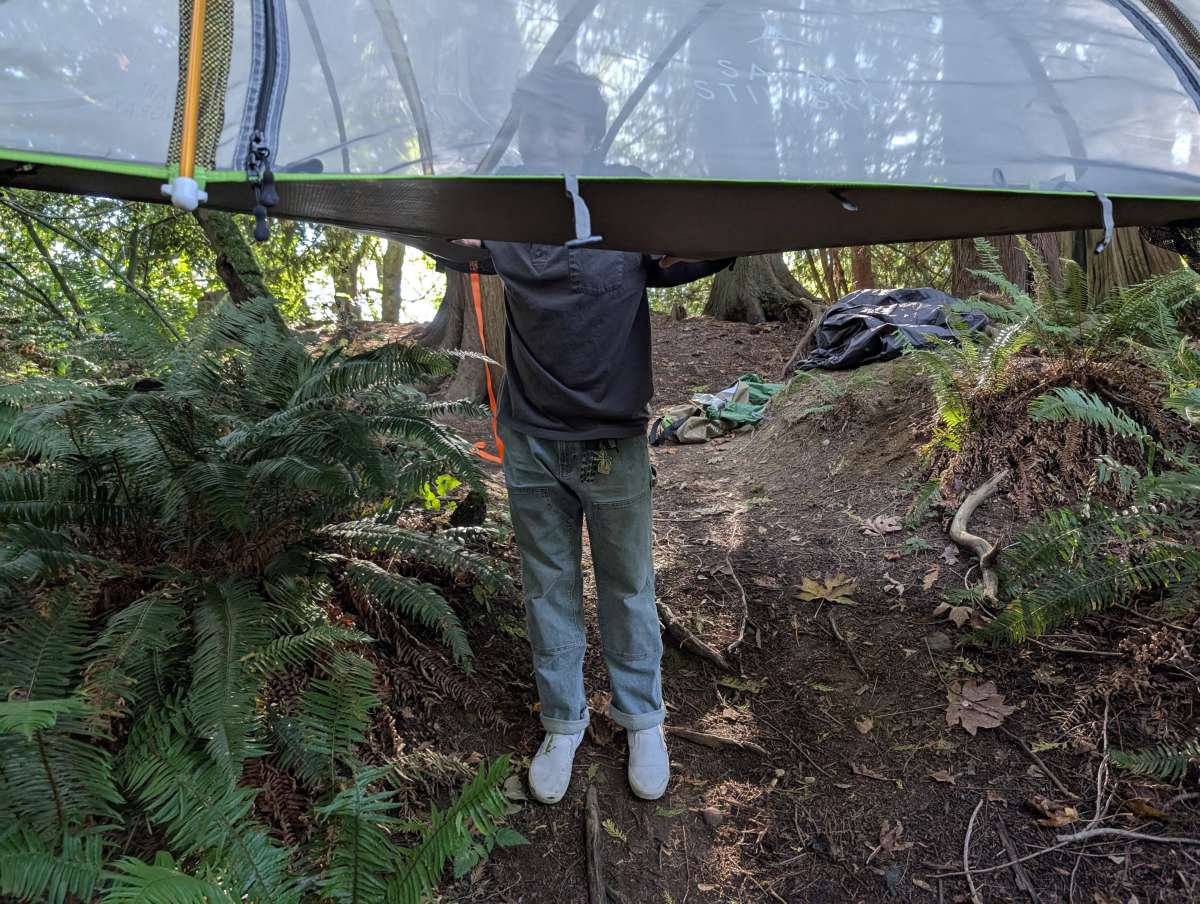
With setup complete, it was time to test out the integrity of the Safari Stingray and perfect our technique for entering and exiting the tent.
Performance
The best way to enter the tent is up through the center hatch. It’s easy to open from the outside, and the reinforced webbing of the tent floor keeps the edges rigid enough to provide support.
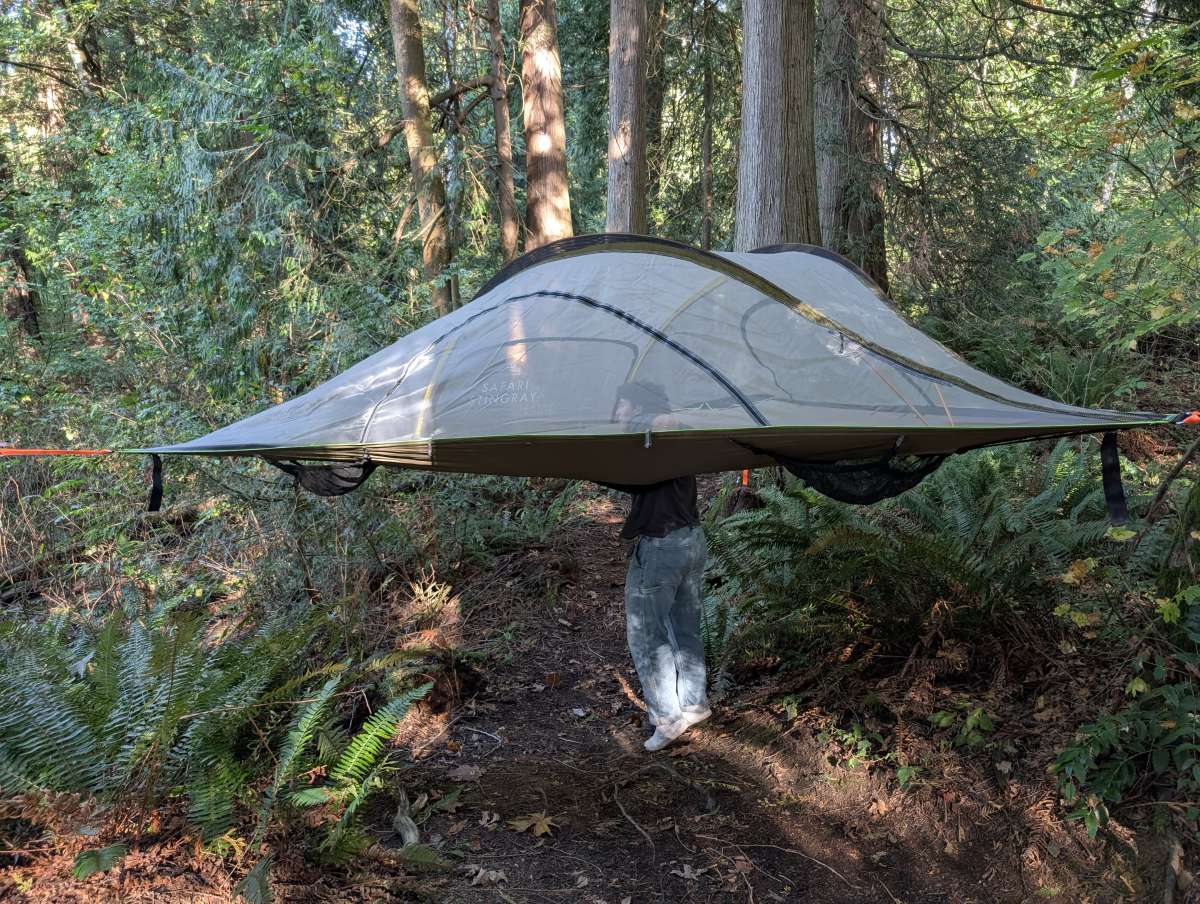
My young assistant had no problem ambling up through the center hatch by leaning back into the tent and lifting himself up.
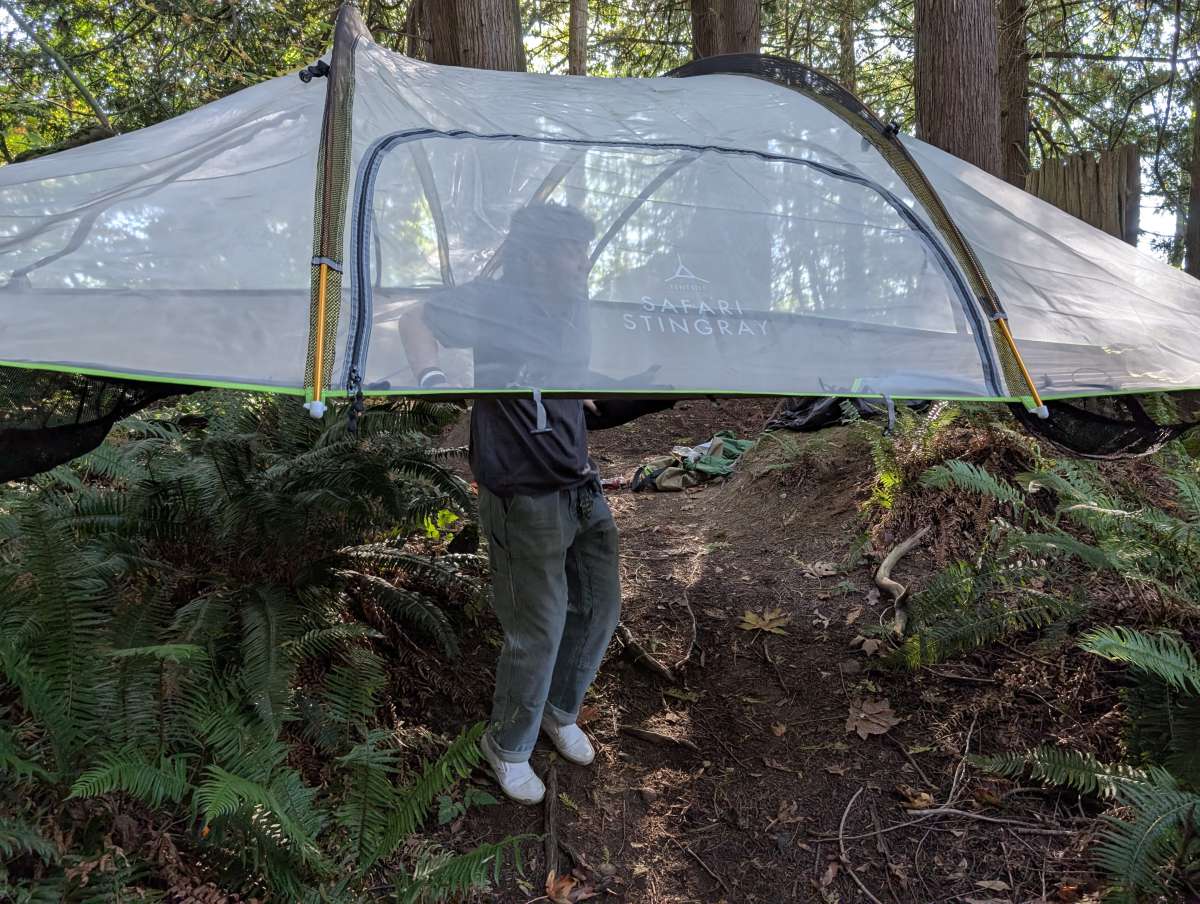
We were concerned that the tent might sag a bit, but surprisingly it barely budged.
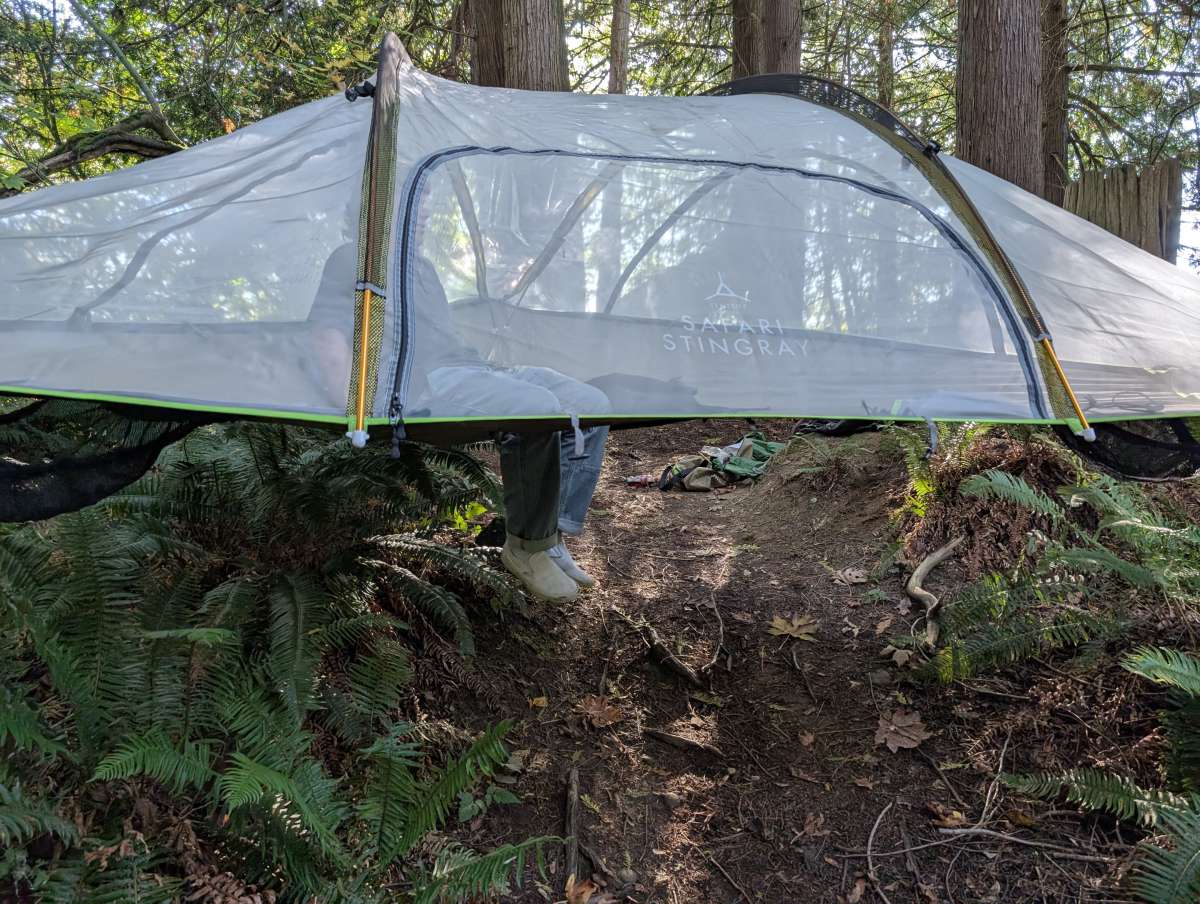
The more difficult task was making sure that dirty shoes weren’t brought into the clean tent.
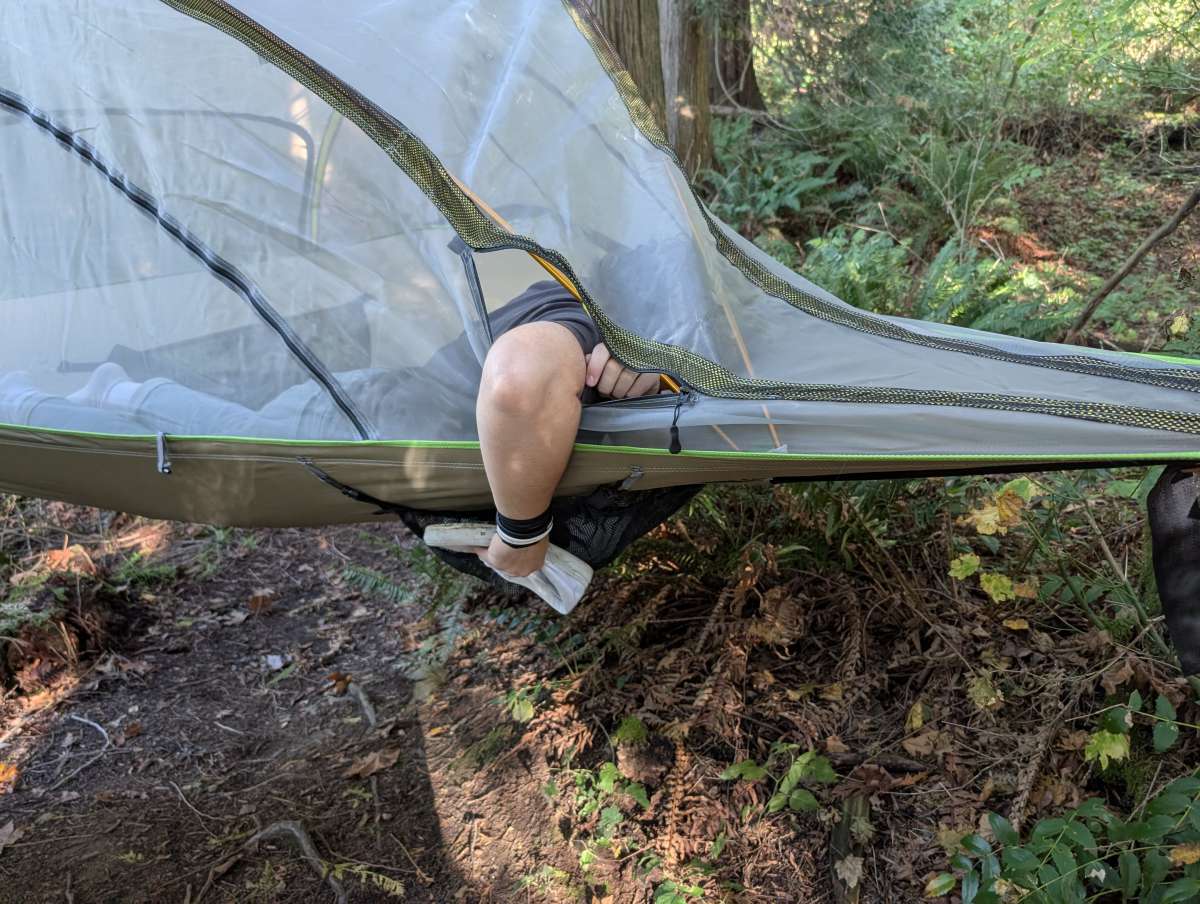
But with a little stretching, it wasn’t too hard to reach under the tent from the inside to secure our footwear in the storage nets beneath the tent.
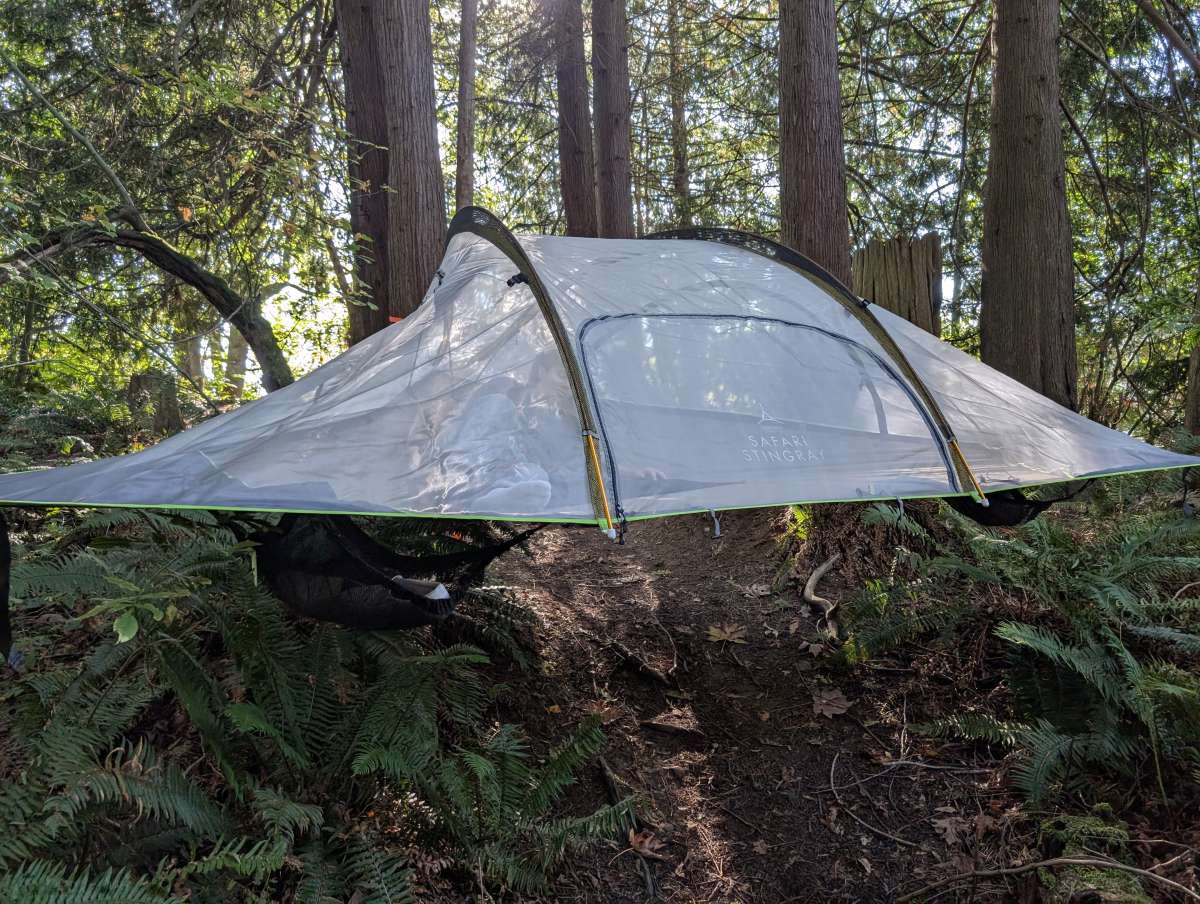
My entrance into the tent wasn’t as graceful as my assistant’s, but I did manage to make it in without breaking a hip.
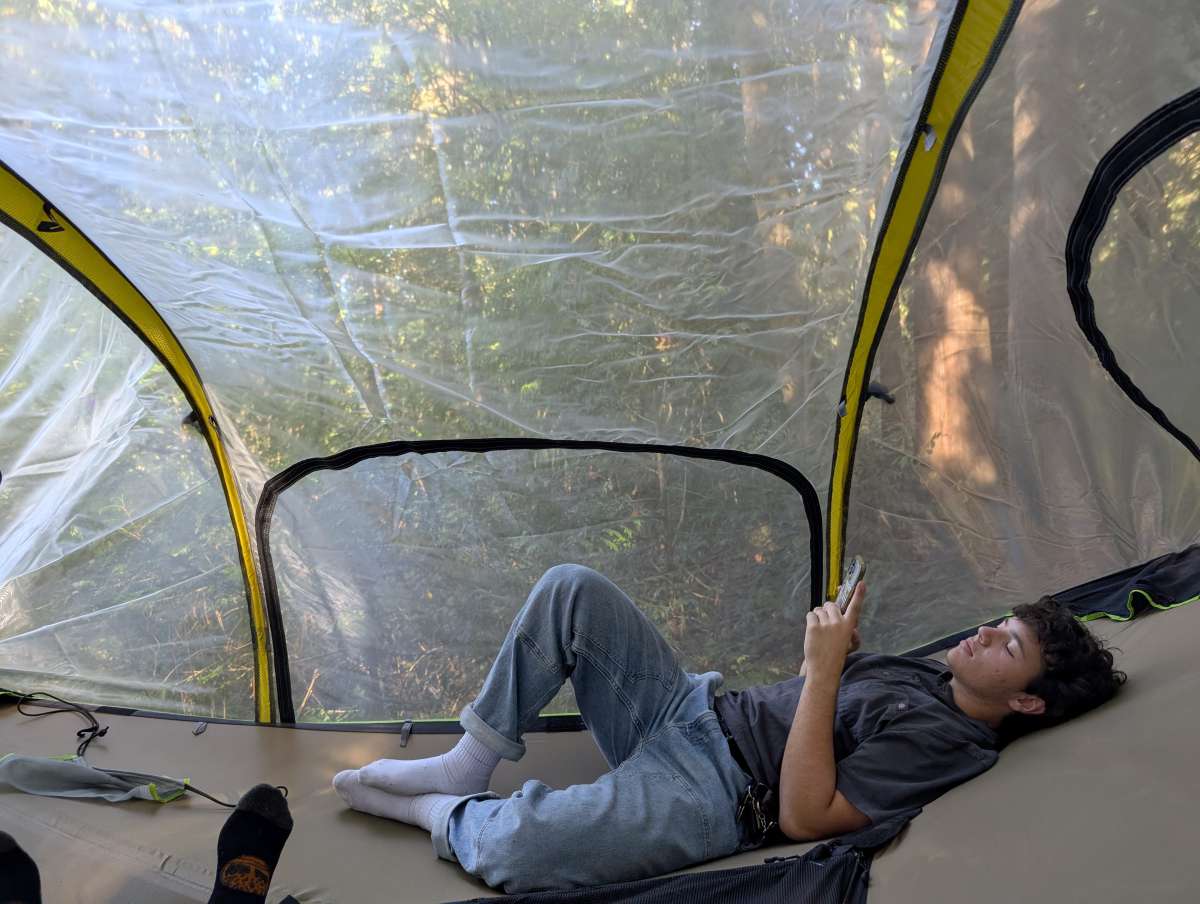
Once inside, the tent is surprisingly roomy and stable. It can easily accommodate up to three adults without feeling cramped.
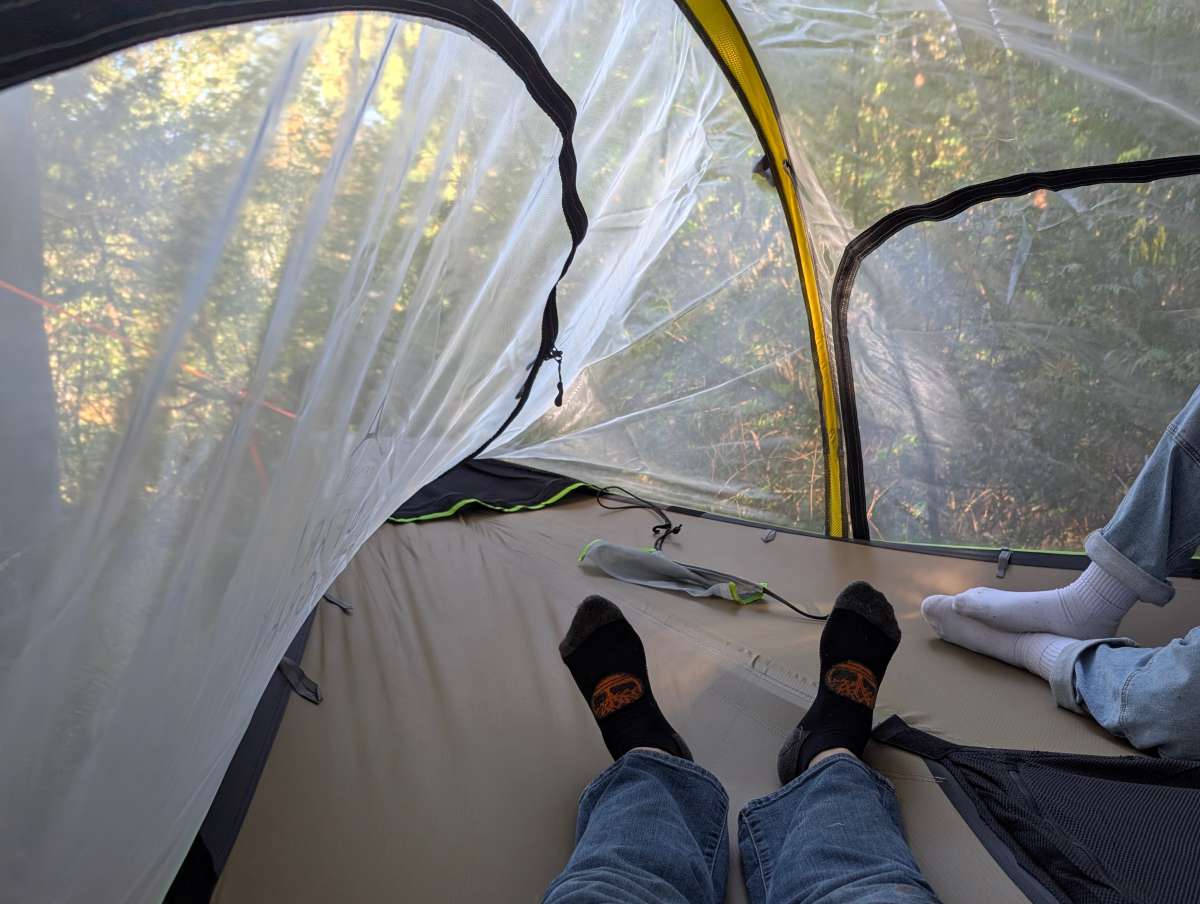
The webbing successfully separates the sleeping zones for each occupant. Even with only two of us inside, there was no discernible listing or sagging.
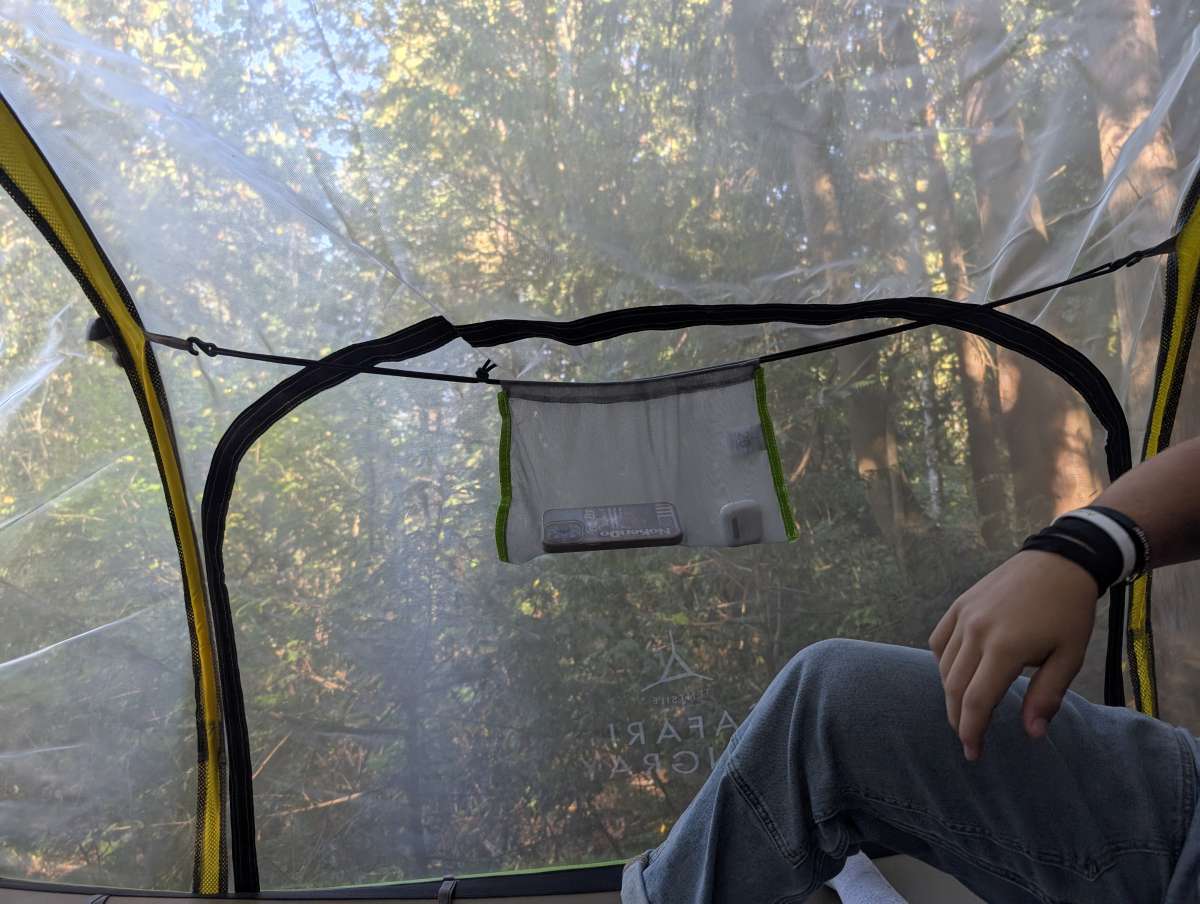
The interior storage pockets were easy to place in convenient spots for holding our phones, keys, and other small items.
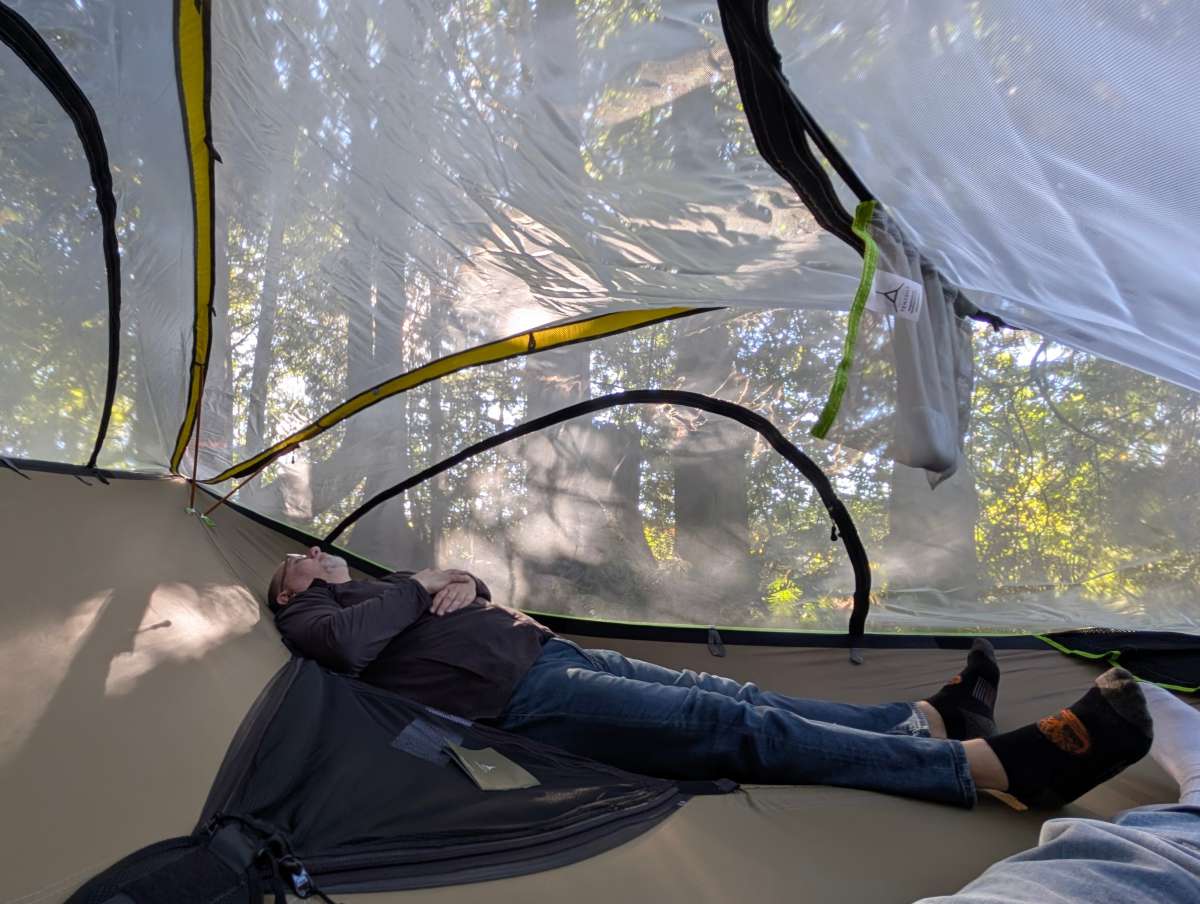
Both of us were able to fully stretch out and have room for extra gear around us.
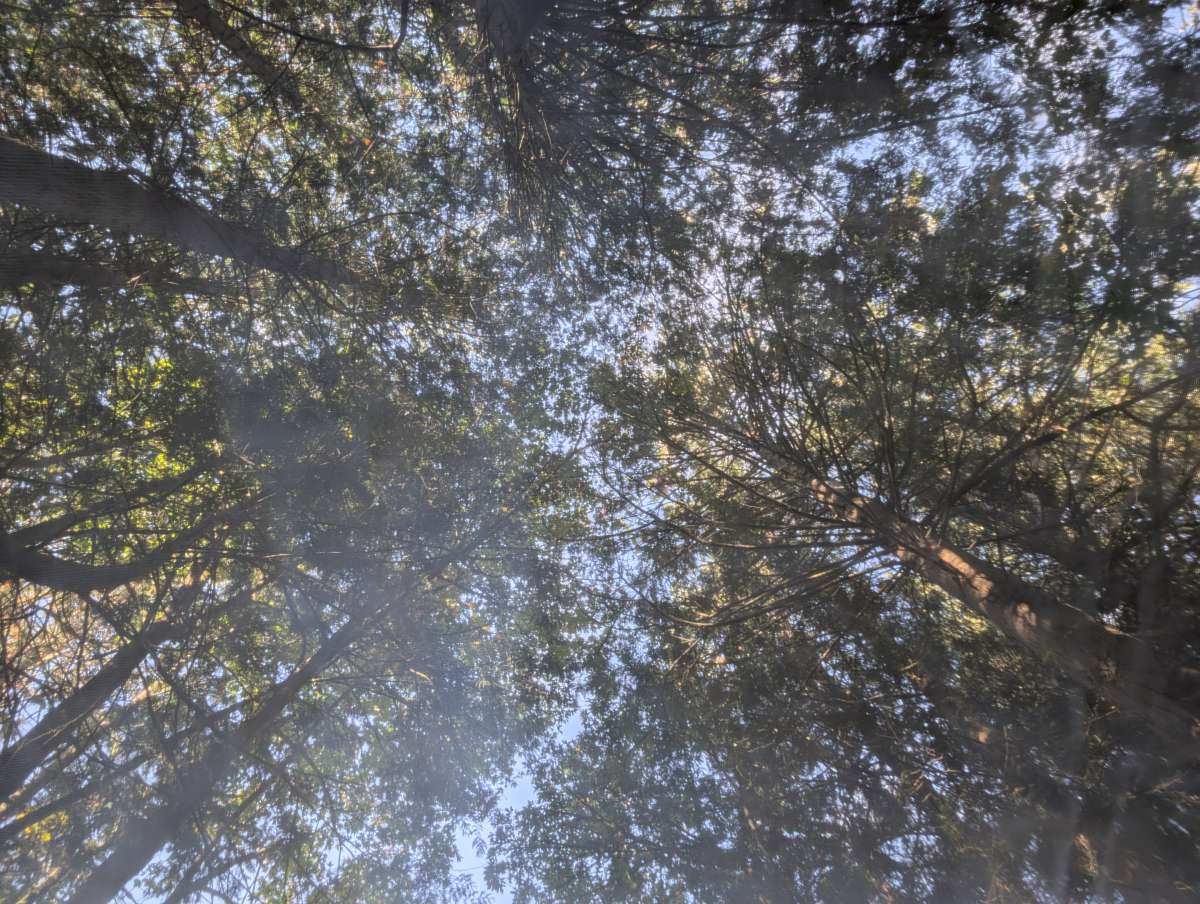
One of the best parts of the Safari Stingray is the 360° view while inside. I’m excited to try it out on some more overnights where the stars would be visible.
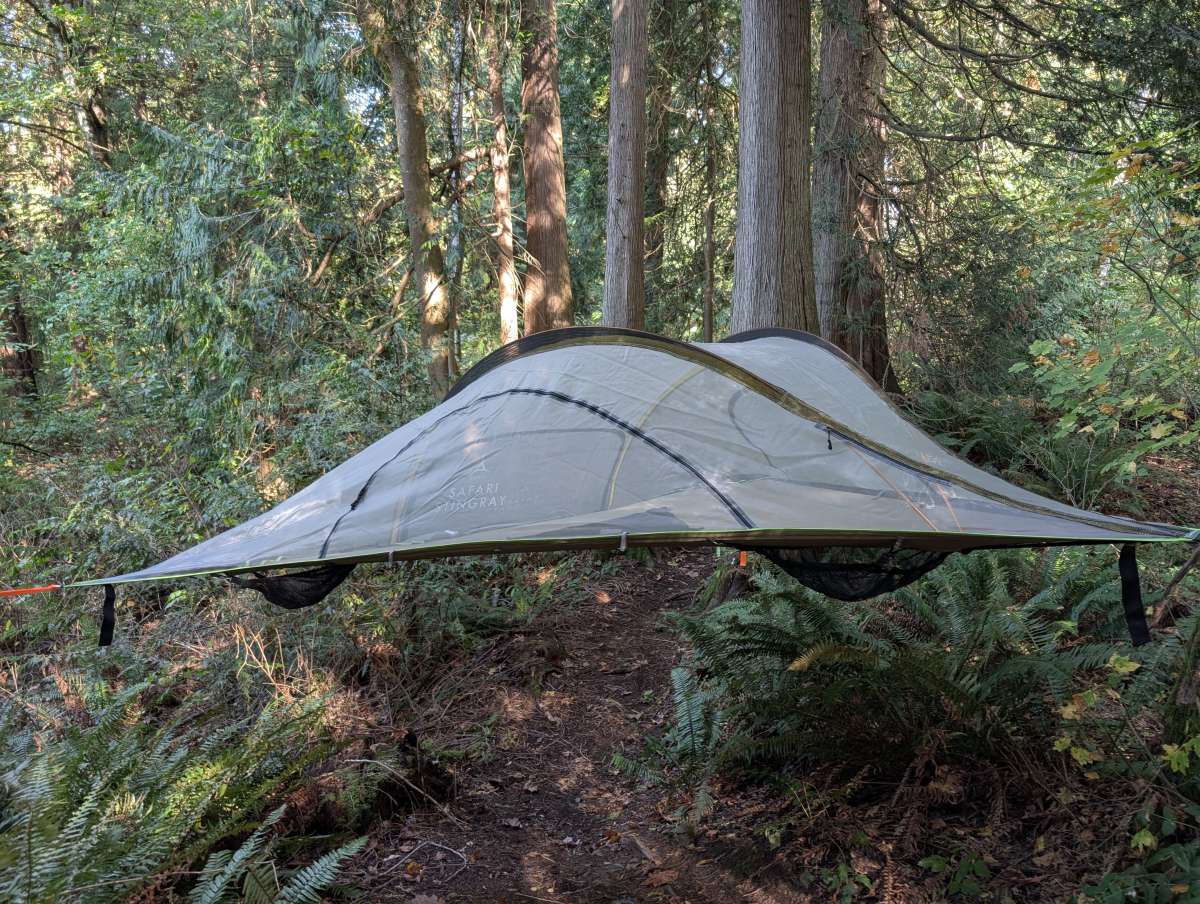
Overall, I was thoroughly impressed with the Safari Stingray and cannot wait to use it on more extended trips.
What I like about the Tentsile Safari Stingray Tent
- Easy to set up once appropriate trees are found
- Innovative and durable construction
- Spacious and comfortable interior
What needs to be improved
- Very expensive
- May be difficult to find appropriately sized trees with correct spacing
- Challenging to enter and exit without disrupting gear and other occupants
Final thoughts
The Tentsile Safari Stingray Tent is a high-quality, innovative camping option for those willing to spend a little more money for a unique experience. At $1,159, the tent certainly isn’t cheap, and it does take a bit more effort to find an appropriate spot for setup. However, the build quality and comfort of the Safari Stingray are exceptional. Along with the bonus of some great outdoor views, the Tentsile Safari Stingray is definitely worth the money and extra setup time.
Price: $1,159.00
Where to buy: Tentstile and Amazon
Source: The sample of this product was provided for free by Tentstile. Tentstile did not have a final say on the review and did not preview the review before it was published.



Gadgeteer Comment Policy - Please read before commenting
OK…this is pretty fascinating!!! I was SUPER skeptical at first, but the photos of you INSIDE the tent made the argument kind of compelling, LOL.
Now I want to try it!!! Damn it 🙂